Energy, Environment and Climate Change
2024 was a record-breaking year for the Energy, Environment, and Climate Change Program (EECP), marked by outstanding achievements on all fronts – scholastic, policy impact, and financial sustainability. Two PhD students funded by an EECP project graduated from the Manipal Academy of Higher Education (MAHE) during 2024 and three more students submitted their dissertations to MAHE. Besides a record number of indexed journal publications, EECP faculty & other researchers also completed seven research projects and published several research reports based on these studies. EECP faculty are engaging with India's policymakers through their research reports submitted to NITI Aayog, the Ministry of Environment, Forest, and Climate Change (MoEFCC), and the office of PSA. Select EECP faculty are also members of working groups/committees constituted by NITI Aayog and MoEFCC on India's climate strategy and were included as technical experts in Government delegations to COP 29 and the Intergovernmental Panel on Climate Change (IPCC). Last but not least, the pioneering research and policy advocacy of EECP faculty in Small Modular Reactors (SMRs) have been recognized by three reputed private sector companies awarding projects for the selection of sites for Bharat Small Reactors (BSRs) announced in the Union Budget 2024.

|
R Srikanth Professor and Dean School: School of Natural Sciences and Engineering Programme: Energy, Environment and Climate Change Room no: S-11 Tel: 080-2218 5135 Fax: 080-2218-5028 rsrikanth@nias.res.in Srikanth CV March 2025.pdf |

Raja Ramanna Chair

Doctoral Student

Post-Doctoral Associate

HONORARY VISITING PROFESSOR

Sir Ashutosh Mukherjee Chair Professor

Post-Doctoral Associate

DOCTORAL STUDENT

DOCTORAL STUDENT

DOCTORAL STUDENT

Professor
Homi Bhabha Chair Visiting Professor
Associate Professor

Doctoral Student

| Energy Studies Energy studies includes a very wide range of sub-themes. EECP contributes to many of these sub-themes through its research. This includes studies on the power sector specifically, e.g., evaluating reforms in the power sector, the role and scope of clean coal technologies, developing models for optimal electricity supply, and analysis of inter-regional power flows. Faculty and scholars at the EECP also do research on the energy sector as a whole, including and beyond the power sector, e.g., exploring the role of renewable energy systems and their potential impacts, modelling of solar thermal systems, exploring the potential for sustainable fuels in the transport sector, development of integrated energy-environment-economy models, evaluating the implications of energy transitions for labour and other developmental indicators, and energy use and mechanisation in agriculture, among others. |
| Environmental Studies Faculty and research scholars at the EECP are involved in multiple projects that study various aspects of the interaction of human systems and settlements, and the environment. This includes studies on air quality and its impacts on public health, environmental policy and jurisprudence in coal mining regions, integrated water resource management, sustainable transportation in cities, vulnerability and adaptability of ecosystems, ecosystem services with a focus on aquatic systems, evaluating airshed properties of urban regions, rehabilitation of degraded ecosystems, and modelling urban micro-climates, among others. |
| Climate Studies Research focusing specifically on climate change, includes studies on climate change mitigation, adaptation, and understanding and addressing vulnerability to climate change. This includes the study of global environmental and climate change policies, climate change negotiations, and exploring ideas of equity in climate action. EECP also studies the nature and scale of socio-economic impacts of weather variability, extreme events, and climatic uncertainty on production of goods and services. Understanding existing responses to ongoing changes and exploring methods of strengthening these responses with access to scientific knowledge and technological instruments is an important part of this work. |
| Interaction between Earth and Human Systems Funding Agency: Ministry of Earth Sciences, Government of India Project Description: This project is primarily designed to conduct PhD dissertation research inter alia in the following areas:
Besides, research is also being conducted on the microclimate of select metropolitan services and air pollution models. |
| Climate Change Mitigation in India’s Third National Communication Funding Agency: Ministry of Environment, Forests, and Climate Change, Government of India Project Description: This project aims to provide a draft of the chapter on “Climate Change Mitigation” for India’s Third National Communication to the UNFCCC. Climate change mitigation is one of the most important focus areas in climate policy. It encompasses a vast arena of interventions, policies, technological development, and deployment, that are aimed at reducing greenhouse gas (GHG) emissions, consequently leading to limiting the rise in global surface temperatures to below certain limits. The need to limit GHG emissions on a global scale is increasingly becoming an important determinant of energy policy, even in developing countries such as India. This is a consequence of the fact that effective global climate action requires some form of contribution to climate change mitigation from all nations. The nature and scale of such contributions may of course vary based on the formulation of domestic policies in accordance with national circumstances, historical responsibility, and an assessment of the country’s role in the global arena. In this context, India’s contribution to climate change mitigation far exceeds its past and current responsibility in causing climate change, despite the developmental challenges the country faces, which are now further exacerbated by the prolonged COVID-19 crises on the domestic as well as international front. This is the context in which the assessment of India’s efforts on climate change mitigation will be evaluated and reported. Potential and existing interventions to reduce emissions by either increasing energy efficiency, substituting fossil fuels with green energy technologies, or replacing processes themselves where possible, undertaken in the country since the Second National Communication, will be discussed in this chapter. The chapter will discuss these in the context of India’s role in climate change mitigation as understood within the guiding principles of the UNFCCC, that underline the importance of equity and differentiated responsibility in climate action. |
| Role and Viability of Nuclear Power Funding Agency: Nuclear Power Corporation of India Limited (A Government of India Enterprise) Project Description: Nuclear Power Plants (NPPs) are based on well-established, safe, and environment-friendly technologies in India that can generate power on a 24x7 basis unlike VRE sources. Based on the administrative approvals and financial sanctions accorded by the Government for future NPPs, the total installed nuclear power capacity in India is expected to rise to 22,480 MW by the middle of the next decade. Considering the total TPP capacity of 205 GW in India today and the aspirations of India’s young population there is a need to develop a national policy and strategy along with action plans to expedite the construction of NPPs in time to replace a significant part of TPP capacity. In the long term, given the imperatives of mitigating climate change, while meeting India’s developmental requirements, there is a need to realistically assess the potential for NPPs and conduct and honest and transparent comparative analysis of nuclear energy technology vis-à-vis other technologies in terms of their best possible use in the Indian context. Such an analysis must also consider the strategic role and multiplier effect of NPPs on India’s economy as a whole. |
| A Status Report on the Rare Earth (RE) Ecosystem in India Funding Agency: IREL (India) Limited (A Government of India Enterprise) Duration: 9 months Project Description: The focus of the report will be on a RE Policy Framework for the Government of India to act on. A critical review of the current global RE industry will form the first section of the report. The second part will take stock of the status of RE developments in India. It will identify the prospects and problems for the development of a viable RE industry in the country. The third part will link Indian capabilities to the global scene and identify a set of options with a ranking scheme that has both supply (technology) side as well as demand (product/ market) side dimensions. The final section of the report will link the different strands into an integrated picture of the various options for consideration of decision and policy makers at the Government of India level. The aim of the report will be to provide a comprehensive assessment of commercial as well as strategic RE value chains. The focus will be on attaining self-sufficiency and meeting domestic needs through all available means that includes both indigenous development as well as technology transfer. The report will only address the downstream part of the RE value chains. In view of the importance of “Green Energy” as well as the initiatives already taken pertaining to Permanent Magnets in India, the report will lay special emphasis on these value chains. |

|
Rudrodip Majumdar Nondegradable Waste Incursion, Environment and Ecology: A Case of Densely Populated Urban Settings in India. https://link.springer.com/chapter/10.1007/978-3-032-07155-2_10 Majumdar, R. (2026). Nondegradable Waste Incursion, Environment and Ecology: A Case of Densely Populated Urban Settings in India. In: Joshi, P., Mahato, S., Shkaruba, A. (eds) Geospatial Science for Urban Ecosystems. The Urban Book Series. Springer, Cham. |

|
R Srikanth Impact of the COVID-19 lockdown on agriculture in a rainfed region in India: Lessons for dealing with natural and economic shocks https://www.sciencedirect.com/science/article/pii/S0970389625000710?via%3Dihub= Chatterjee, J., Nannewar, R. G., Kanitkar, T., & Srikanth, R. (2025). Impacts of the COVID-19 lockdown on agriculture in a rainfed region in India: Lessons for dealing with natural and economic shocks. IIMB Management Review 37(4). |

|
Rakesh G Nannewar Impact of the COVID-19 lockdown on agriculture in a rainfed region in India: Lessons for dealing with natural and economic shocks https://www.sciencedirect.com/science/article/pii/S0970389625000710?via%3Dihub= Chatterjee, J., Nannewar, R. G., Kanitkar, T., & Srikanth, R. (2025). Impacts of the COVID-19 lockdown on agriculture in a rainfed region in India: Lessons for dealing with natural and economic shocks. IIMB Management Review 37(4). |
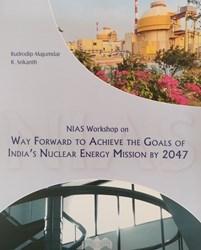
|
R Srikanth NIAS Workshop on Way Forward to achieve the Goals of India’s Nuclear Energy Mission by 2047 http://eprints.nias.res.in/3027/ Majumdar, Rudrodip and Srikanth, R (2025) NIAS Workshop on Way Forward to achieve the Goals of India’s Nuclear Energy Mission by 2047. Report. NIAS, Bengaluru. |

|
Rudrodip Majumdar NIAS Workshop on Way Forward to achieve the Goals of India’s Nuclear Energy Mission by 2047 http://eprints.nias.res.in/3027/ Majumdar, Rudrodip and Srikanth, R (2025) NIAS Workshop on Way Forward to achieve the Goals of India’s Nuclear Energy Mission by 2047. Report. NIAS, Bengaluru. |

|
Rudrodip Majumdar Improving recyclability of open thermochemical storage using SrBr2/SiO2 composite: Experimental and numerical study https://www.sciencedirect.com/science/article/abs/pii/S036054422505145X Kalpana, Majumdar, R., & Saha, S. K. (2025). Improving Recyclability of Open Thermochemical Storage using SrBr2/SiO2 Composite: Experimental and Numerical Study. Energy, Vol. 341:139503. Thermochemical energy storage (TCES) systems are a promising long-term storage solution for space heating applications due to their high energy density and low energy losses. Although identified as promising thermochemical materials, inorganic salt hydrates suffer from issues related to cycling stability, agglomeration, and deliquescence during charging and discharging. Using composites can help address these challenges by improving the material's structural stability and performance over multiple cycles. This study investigates a composite mixture of strontium bromide hexahydrate (SrBr2·6H2O) and silica gel (SiO2) in an open TCES system, experimentally and numerically. A two-dimensional numerical model for the SrBr2·6H2O/SiO2 composite mixture is developed and validated against in-house experimental data for charging and discharging processes. The effect of varying SiO2 abundance (0 %, 25 %, 50 %, 75 %, and 100 %) in the composite mixture on the charging and discharging performance of the system is studied. The study identified the 50 % SiO2 composite mixture as the optimal configuration, balancing structural stability provided by SiO2 and energy storage capacity rendered by SrBr2·6H2O. The pure SiO2 exhibits the highest energy supplied (360.29 kJ) and temperature rise, whereas the pure SrBr2·6H2O delivers the highest discharging efficiency (∼94.9 %). These findings provide valuable insights into optimised material composition for stable and sustainable energy storage. A multi-cycle simulation considering the 50 % SiO2 composite mixture prima facie demonstrates the operational stability of the open TCES over multiple cycles, warranting further experimental exploration under realistic conditions. |

|
Rudrodip Majumdar Sensible heat storage performances of Hytherm 600 oil and energy-harnessing features of glycol-water mixture under simultaneous charging and discharging conditions https://www.sciencedirect.com/science/article/abs/pii/S2451904925011023 Hazarika, R., Majumdar, R., Mahapatra, S., & Saha, S. K. (2025). Sensible heat storage performances of Hytherm 600 oil and energy-harnessing features.... . Thermal Science and Engineering Progress, Vol.68: 104311. A sensible thermal energy storage (TES) system is studied using Hytherm 600 oil as the storage medium and a 30:70 ethylene glycol–water (EG-W) mixture as the discharging fluid, owing to its extended operating temperature range (− 14 ◦C to 105 ◦C) at atmospheric pressure. The EG-W mixture alleviates the working limitations of pure water by lowering the freezing point and elevating the boiling point, making it suitable for solar thermal systems in colder climates and for low-temperature industrial heat recovery without pressurized systems. The analyses establish that higher charging temperatures strongly promote stratification, effectively countering the mixing induced by higher discharge rates. The insights derived from the study establish a crucial foundation for configuring effective TES systems with non-conventional discharging fluids for various low-temperature applications. |

|
Rudrodip Majumdar, Kumar Saurabh Long-term Growth and Energy Transition Roadmap for Personal Passenger Mobility in India http://eprints.nias.res.in/3005/ NIAS Policy Brief (NIAS/NSE/EECP/R/PB/05/2025) |

|
Shaik Vazeed Pasha Predicting habitat suitability of Dalbergia latifolia Roxb. (Indian rosewood) using MaxEnt: implications for conservation and sustainable forest management https://link.springer.com/article/10.1186/s12862-025-02446-z Manohara, T.N., Pasha, S.V., Swarada, B. et al. Predicting habitat suitability of Dalbergia latifolia Roxb. (Indian rosewood) using MaxEnt: implications for conservation and sustainable forest management. BMC Ecol Evo 25, 115 (2025). Dalbergia latifolia Roxb. (Indian rosewood) is a high ecological and economic value, native to India’s tropical and subtropical forests. This study presents the first high-resolution, range-wide habitat suitability assessment of across India using MaxEnt modelling. By integrating over 3,200 geo-referenced occurrence records with 19 bioclimatic variables, the research identifies key ecological zones and conservation gaps for this ecologically vital and economically valuable species. With Karnataka, Kerala, and Tamil Nadu emerging as core habitats, the findings offer actionable insights for conservation prioritisation, agroforestry planning, and climate-resilient restoration. The study supports national initiatives like CAMPA and the UN Decade on Ecosystem Restoration, providing a robust spatial framework to guide sustainable forest management and policy implementation. |

|
Rudrodip Majumdar Parametric Analysis of Silica Gel for Thermal Energy Storage in Space Heating Applications http://eprints.nias.res.in/2993/ Kalpana, R. Majumdar, S. K. Saha, In: Proceedings of ASME 2025 International Mechanical Engineering Congress and Exposition India (IMECE-INDIA2025), Hyderabad, India, September 10-13, 2025. (Paper ID: 160337) High energy density and minimal energy losses render thermochemical energy storage (TCES) systems a promising long-term solution for space heating applications. While inorganic salt hydrates are considered effective thermochemical materials, challenges such as cycling stability, agglomeration, and deliquescence during the charging and discharging processes limit their efficacy. Porous matrices, like silica gel (SiO2), present a viable alternative to address these issues. In this study, a two-dimensional numerical model for SiO2 is developed for an open TCES system and validated against in-house experimental data. A parametric analysis was conducted to examine the effects of varying inlet airflow rates and air temperature on the system's discharging performance. The numerical results exhibit the maximum temperature rise of ~ 33°C and peak discharging efficiency of ~49% for the lowest airflow rate of 0.00639 kg/s. Additionally, the highest discharging efficiency of 60.38% was observed at the highest inlet air temperature of 27°C. These findings offer valuable insights for optimizing material composition to enhance the stability and sustainability of energy storage systems. |

|
Rudrodip Majumdar Investigation of Stratification Performance in Oil-based and Water-based Cylindrical Thermal Storages for Industrial Applications http://eprints.nias.res.in/2994/ Anas A.E. Ahmed, R. Majumdar, S. K. Saha, In: Proceedings of ASME 2025 International Mechanical Engineering Congress and Exposition India (IMECE-INDIA2025), Hyderabad, India, September 10-13, 2025. (Paper ID: 159333) The present study uses a three-dimensional numerical model to investigate the thermal stratification performance of vertical cylindrical thermal energy storage under simultaneous charging and discharging operations pertinent to low-temperature (below 100 ℃) industrial applications. First, the study investigates an oil-based TES using Hytherm 600 as the heat storage medium, and water circulating through the immersed helical discharging coil serves as the heat extraction fluid. To compare the energy-harnessing features, the study considers the reverse scenario with water as the heat storage medium and oil as the discharging fluid. The charging temperature and flow rate are kept constant at 90 ℃ and 0.5 L/min, respectively. Three discharging flow rates (i.e., 0.5, 1.25, and 2 L/min) are considered to understand the realistic interplay between energy demand and supply. Results show that the water-based TES system exhibits the highest energy discharged (3733.9 kJ) and discharging efficiency (72.7%), accompanied by peak average stratification number and low energy losses to the surroundings (263.2 kJ), with the coil-side discharging (oil) flow rate of 2 L/min. However, for the oil-based TES system, the energy discharged (1343 kJ) and discharging efficiency (57%) are comparatively lower for the 2 L/min water flow rate through the discharging coil.
|

|
Rudrodip Majumdar Novel multiscale model for grain-packed inorganic salt hydrate-based open thermochemical storage for low-temperature space heating applications https://www.sciencedirect.com/science/article/abs/pii/S0360544225039684 Pujari, A. S., Kalpana, Majumdar, R., & Saha, S. K. (2025). Novel Multiscale Model for Grain-Packed Inorganic Salt Hydrate-based Open Thermochemical Storage for Low-Temperature Space Heating Applications. Energy, Vol.336:138326. This study presents the development, validation, and application of a multiscale numerical model for an open thermochemical energy storage (TCES) reactor using SrBr2·6H2O as the representative reactive medium. The objective is to accurately capture and predict the coupled phenomena of heat and mass transfer occurring across two physical scales—the reactor bed and individual salt grains—during hydration and dehydration cycles. Experiments are conducted on a rectangular stainless-steel reactor filled with SrBr2·6H2O under controlled inlet air conditions. SEM images are used to estimate grain-level porosity and the particle size distribution. Grain diameters range from 0.2 mm to 4.0 mm, and porosities vary from 0.13 to 0.22 across cycles. The multiscale model is developed in MATLAB, where the bed-level routine solves conservation equations using Darcy's law and volume-averaged properties. Conversely, the grain-level routine solves unsteady diffusion-reaction equations inside the spherical salt grains. Reaction advancement modifies the grain size and the porosity dynamically, and volume-averaged source terms aid in coupling the two scales. A representative grain approach is adopted for better computational efficiency without compromising the accuracy of the results. The developed model is validated against in-house experiments and prominent literature with outlet temperature predictions, achieving R2 values of 0.93 and 0.98 for hydration and dehydration, respectively. A parametric study reveals that smaller grain sizes (0.2 mm) reduce reaction time by 47 % but increase pressure drop up to 2843 Pa. Higher energy densities (∼1.6 GJ/m3) enhance storage while increasing flow resistance. The novel framework helps evaluate TCES reactor performance with evolving material properties across different scales, and enables performance optimisation by balancing energy density, thermal output, and auxiliary power demand. |

|
Rudrodip Majumdar Opportunities and Way Forward for Rare Earth Industry Ecosystem in India https://www.linkedin.com/posts/rudrodip-majumdar-63323416_rareearths-efficientmagnets-recatalysts-activity-7294592460758949888-EGBW/ Theme Meeting on Role of Rare Earth Metals, Alloys, and Compounds for Self-Reliant India (REMAC 2024), 11-12 December 2024, Anushaktinagar, Mumbai, India. Room air conditioners (RACs) and laundry washing machines (LWMs) are crucial green energy products linked with economic growth in India, since both have a much lower level of market (and household) penetration than refrigerators. The key issues often overlooked while creating the aspiration-driven, larger picture are the availability of resources and indigenous industrial capability. The aspiration for the large-scale green transition needs to be revisited periodically to realign the priorities and chart out the most viable trajectory for the transition to a cleaner future. Energy-efficient RACs and LWMs necessitate using Rare Earth (RE) permanent magnets in their motor architecture because of their superior performance compared to their ferrite counterparts. All the motors and magnets used in the air conditioners, washing machines, and EVs are currently imported. More than 80% of the usage of rare earths in value terms is in RE permanent magnets. The industrial capabilities to manufacture RE permanent magnets and customized motors for the ecosystem would require appropriate incentives, uninterrupted availability of the critical RE materials used in the magnets, and demand for indigenous products. |
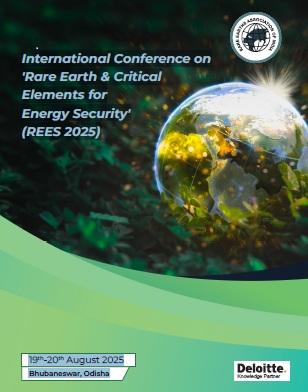
|
Rudrodip Majumdar Strengthening Initiatives for a Robust Rare Earth Industry Ecosystem in India: Significance and Way Forward https://rees.org.in/ International Conference on 'Rare Earth & Critical Elements for Energy Security' (REES 2025), 19 -20 August 2025, Bhubaneswar, Odisha. The rare earth (RE) supply chains are going to face bottlenecks and possible disruptions owing to the volatile geopolitical environment in some of the critical and nodal countries and regions. Therefore, it is important to render resilience to the global rare earth supply chain network by augmenting an alternate supply source, primarily through the end-of-life (EoL) product recycling. Establishing a comprehensive manufacturing ecosystem capable of sourcing raw materials uninterruptedly would help manufacture the finished products at globally competitive prices. This could unveil India’s potential to build a well-planned white goods production ecosystem while creating strategic capability through partnerships and building capacity by generating large-scale job opportunities. Various case studies emphasize the need for strategy-focused and demand-driven bottom-up assessments to firm up the national requirements so that a holistic national plan can be formulated around the core philosophy of resource adequacy and resource security. |
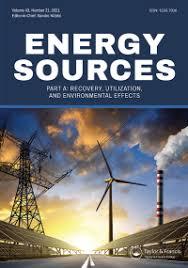
|
Rudrodip Majumdar A case study on the feasibility and optimization of wind farm deployment in India https://www.tandfonline.com/doi/full/10.1080/15567036.2025.2537739 Agarwal, L., Manisha, Arya, Y., Nagpal, N., Majumdar, R., & Gupta, V. (2025). A case study on the feasibility and optimization of wind farm deployment in India. Energy Sources, Part A: Recovery, Utilization, and Environmental Effects, 47(2), 2537739. |

|
Rudrodip Majumdar Energy Efficiency and Circularity: Insights from Adoption Trends of Washing Machines, Critical Materials Demand and Responsible Use Strategies https://www.sciencedirect.com/science/article/abs/pii/B9780443289491000011 Pandey, A., and Majumdar, R. (2025). Energy efficiency and circularity: insights from adoption trends of washing machines, critical materials demand, and responsible use strategies. In Energy Efficiency in Critical Times (pp. 3-18). Elsevier. |

|
Gufran Beig Delhi can’t get clean air without crossing borders https://indianexpress.com/article/opinion/columns/delhi-cant-get-clean-air-without-crossing-borders-9883661/ Indian Express |

|
Gufran Beig, Shailesh Nayak India’s air pollution strategy needs atmanirbharta https://indianexpress.com/article/opinion/columns/indias-air-pollution-strategy-needs-atmanirbharta-9996872/?ref=opinion_hp Indian Express |

|
R Srikanth Summary Report of International Symposium on Nuclear Power to Achieve Net Zero with Energy Security for India held at NIAS on 21st October 2024 (NIAS/NSE/EECP/R/WR/01/2025) http://eprints.nias.res.in/2903/ Majumdar, Rudrodip and Srikanth, R (2025) Summary Report of International Symposium on Nuclear Power to Achieve Net Zero with Energy Security for India held at NIAS on 21st October 2024 (NIAS/NSE/EECP/R/WR/01/2025). Report. NIAS, Bengaluru. |

|
Rudrodip Majumdar Summary Report of International Symposium on Nuclear Power to Achieve Net Zero with Energy Security for India held at NIAS on 21st October 2024 (NIAS/NSE/EECP/R/WR/01/2025) http://eprints.nias.res.in/2903/ Majumdar, Rudrodip and Srikanth, R (2025) Summary Report of International Symposium on Nuclear Power to Achieve Net Zero with Energy Security for India held at NIAS on 21st October 2024 (NIAS/NSE/EECP/R/WR/01/2025). Report. NIAS, Bengaluru. |

|
Gufran Beig Source-specific fine particulates emission linked to prevalence of ophthalmic cases in India https://www.nature.com/articles/s41598-024-82914-6 Sahu, S. K., Mishra, A., Mangaraj, P., Yadav, R., Sahu, M. C., Beig, G., ... & Mishra, M. (2025). Source-specific fine particulates emission linked to prevalence of ophthalmic cases in India. Scientific Reports, 15(1), 11183. |

|
Rudrodip Majumdar Experimental investigation of heat dispatch controllability through simultaneous charging-discharging and stand-alone discharging operations in vertical cylindrical sensible heat storage tank https://www.sciencedirect.com/science/article/abs/pii/S2352152X2201266X Khurana, H., Majumdar, R., & Saha, S. K. (2022). Journal of Energy Storage, 54, 105268. |
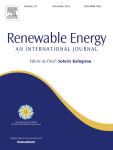
|
Rudrodip Majumdar Response Surface Methodology-based prediction model for working fluid temperature during stand-alone operation of vertical cylindrical thermal energy storage tank https://www.sciencedirect.com/science/article/abs/pii/S0960148122001823 Khurana, H., Majumdar, R., & Saha, S. K. (2022). Response Surface Methodology-based prediction model for working fluid temperature during stand-alone operation of vertical cylindrical thermal energy storage tank. Renewable Energy, 188, 619-636. |

|
Aariz Ahmed Spatial and temporal variations of temperature and rainfall, and land use/land cover changes in the Bengaluru urban district https://mausamjournal.imd.gov.in/index.php/MAUSAM/article/view/6620 Dhanya, G and Srikanth, R and Ahmed, Aariz (2025) Spatial and temporal variations of temperature and rainfall, and land use/land cover changes in the Bengaluru urban district. Mausam, 76 (2). pp. 449-470. |
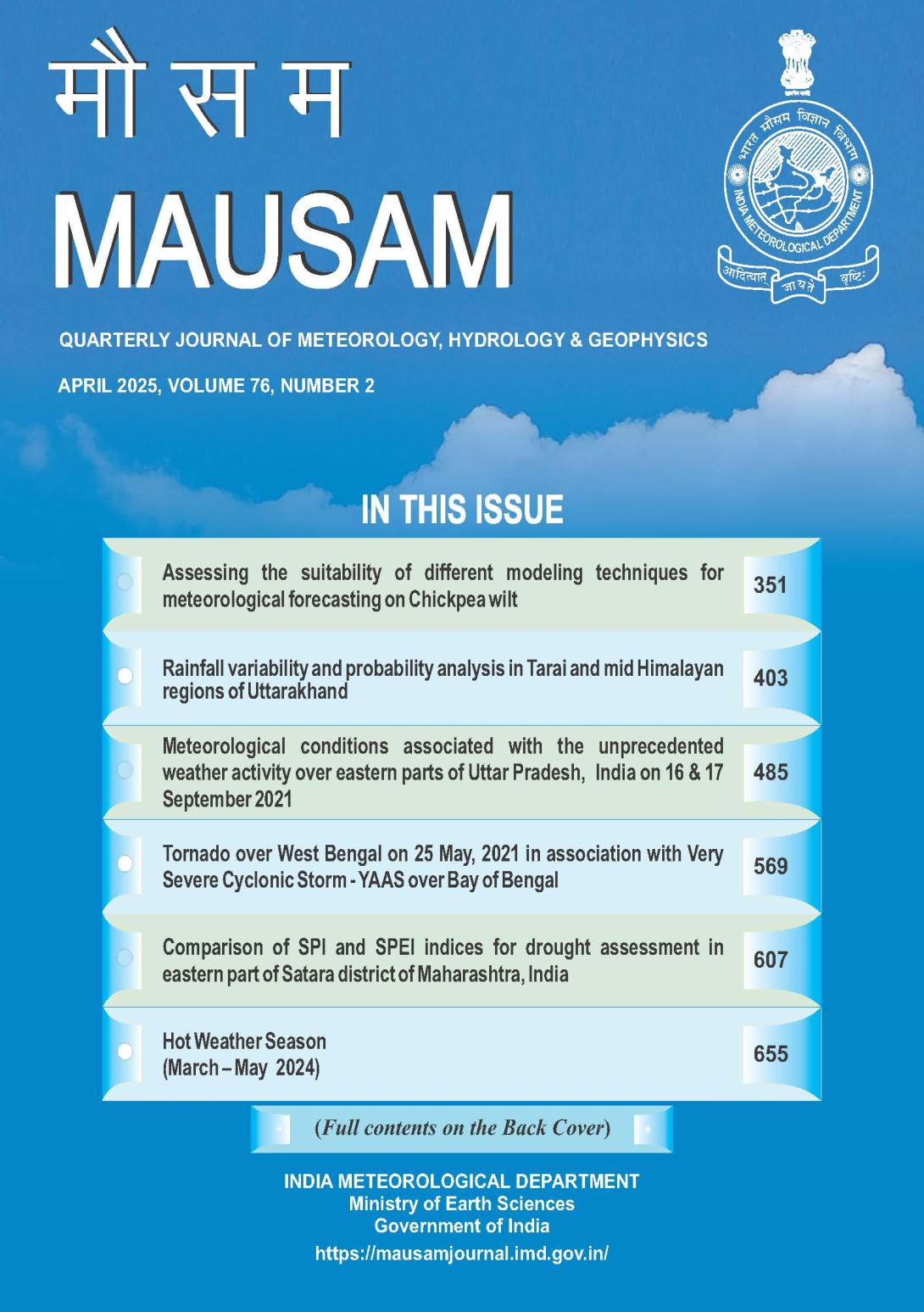
|
Rakesh G Nannewar Evaluating the impact of agrometeorological advisory services on crop yields using propensity score matching method in Karnataka's rainfed regions https://mausamjournal.imd.gov.in/index.php/MAUSAM/article/view/6670/5805 Nannewar, Rakesh Gomaji and Kanitkar, Tejal and Srikanth, R (2025) Evaluating the impact of agrometeorological advisory services on crop yields using propensity score matching method in Karnataka's rainfed regions. Mausam, 76 (2). pp. 529-540. |

|
Tejal Kanitkar Evaluating the impact of agrometeorological advisory services on crop yields using propensity score matching method in Karnataka's rainfed regions https://mausamjournal.imd.gov.in/index.php/MAUSAM/article/view/6670/5805 Nannewar, Rakesh Gomaji and Kanitkar, Tejal and Srikanth, R (2025) Evaluating the impact of agrometeorological advisory services on crop yields using propensity score matching method in Karnataka's rainfed regions. Mausam, 76 (2). pp. 529-540. |

|
R Srikanth Evaluating the impact of agrometeorological advisory services on crop yields using propensity score matching method in Karnataka's rainfed regions https://mausamjournal.imd.gov.in/index.php/MAUSAM/article/view/6670/5805 Nannewar, Rakesh Gomaji and Kanitkar, Tejal and Srikanth, R (2025) Evaluating the impact of agrometeorological advisory services on crop yields using propensity score matching method in Karnataka's rainfed regions. Mausam, 76 (2). pp. 529-540. |

|
R Srikanth Spatial and temporal variations of temperature and rainfall, and land use/land cover changes in the Bengaluru urban district https://doi.org/10.54302/mausam.v76i2.6620 Dhanya, G and Srikanth, R and Ahmed, Aariz (2025) Spatial and temporal variations of temperature and rainfall, and land use/land cover changes in the Bengaluru urban district. Mausam, 76 (2). pp. 449-470. |

|
Rudrodip Majumdar Techno-Economic analysis of solar thermal seasonal thermochemical storage for Indian Himalayan cities https://www.sciencedirect.com/science/article/abs/pii/S1359431125006817 Pujari, A. S., Majumdar, R., Subramaniam, C., & Saha, S. K. (2025). Techno-Economic analysis of solar thermal seasonal thermochemical storage for Indian Himalayan cities. Applied Thermal Engineering, 126090. In this study, a modular radial flow annular reactor using the strontium bromide hexahydrate-monohydrate conversion reaction is designed for long-term energy storage, and performance analysis is conducted for eight cities from the Indian Himalayan Region, each with distinct meteorological characteristics, to evaluate the system’s suitability. The year-long charging and discharging efficiencies are nearly location-independent, with consistent values of ∼35 % and ∼74 %, respectively. The system configuration with direct solar heating capabilities exhibits better overall system efficiency and economic feasibility, with the levelized cost of heating in the range of INR 33–51/kWh. The heating cost is higher than that of conventional electric systems but is competitive with diesel-based heating (>INR 40/kWh). |

|
Gufran Beig The Need for Better Monitoring of Climate Change in the Middle and Upper Atmosphere https://agupubs.onlinelibrary.wiley.com/doi/10.1029/2024AV001465 Anel, J. A., Cnossen, I., Antuna‐Marrero, J. C., Beig, G., Brown, M. K., Doornbos, E., ... & Mlynczak, M. G. (2025). The need for better monitoring of climate change in the middle and upper atmosphere. AGU Advances, 6(2), e2024AV001465. Anthropogenic greenhouse gas emissions significantly impact the middle and upper atmosphere. They cause cooling and thermal shrinking and affect the atmospheric structure. Atmospheric contraction results in changes in key atmospheric features, such as the stratopause height or the peak ionospheric electron density, and also results in reduced thermosphere density. These changes can impact, among others, the lifespan of objects in low Earth orbit, refraction of radio communication and GPS signals, and the peak altitudes of meteoroids entering the Earth's atmosphere. Given this, there is a critical need for observational capabilities to monitor the middle and upper atmosphere. Equally important is the commitment to maintaining and improving long-term, homogeneous data collection. However, capabilities to observe the middle and upper atmosphere are decreasing rather than improving. |
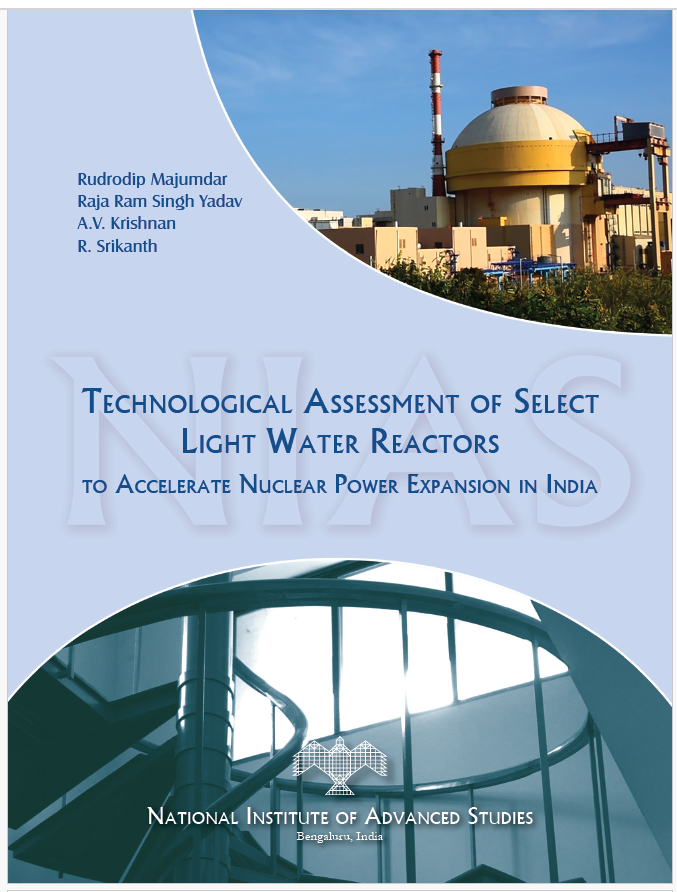
|
R Srikanth Technological Assessment of Select Light Water Reactors to Accelerate Nuclear Power Expansion in India (NIAS/NSE/EECP/R/RR/01/2025) http://eprints.nias.res.in/2871/ Majumdar Rudrodip, Raja Ram Singh Yadav, A.V. Krishnan and R. Srikanth (2025). Technological Assessment of Select Light Water Reactors to Accelerate Nuclear Power Expansion in India. Report. NIAS, Bengaluru. Large-sized nuclear power plant (NPP) units with a rated capacity of 700 MWe or more are crucial for the civilian nuclear sector since they enable efficient land utilization, and provide economies of scale, facilitating rapid capacity enhancement. However, since commercial nuclear reactors are envisaged to supply clean and affordable baseload power to the utilities, the possible technological options should be evaluated in detail through a multi-disciplinary lens. This report provides a detailed comparative evaluation of five prominent variants of large light water reactors (LWRs) of foreign origin and an indicative ranking among the studied reactor technologies is provided as input to policymakers and eligible Indian energy companies interested in putting up large LWRs. |

|
Tejal Kanitkar Enhancing inclusiveness and sustainability: impact of accessibility and affordability on public transportation in an Indian megacity https://www.tandfonline.com/doi/full/10.1080/29941849.2025.2449830 Ghosh, T., Kanitkar, T., and Srikanth, R. (2025). Enhancing inclusiveness and sustainability: impact of accessibility and affordability on public transportation in an Indian megacity. Sustainable Transport and Livability, 2(1), 1-31. |

|
Tanmay Ghosh Enhancing inclusiveness and sustainability: impact of accessibility and affordability on public transportation in an Indian megacity https://www.tandfonline.com/doi/full/10.1080/29941849.2025.2449830 Ghosh, T., Kanitkar, T., and Srikanth, R. (2025). Enhancing inclusiveness and sustainability: impact of accessibility and affordability on public transportation in an Indian megacity. Sustainable Transport and Livability, 2(1), 1-31. |
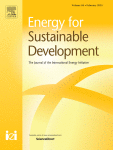
|
Tejal Kanitkar Energy requirements for sustainable human development https://www.sciencedirect.com/science/article/abs/pii/S0973082624002746 Ranjan, A., and Kanitkar, T. (2025). Energy requirements for sustainable human development. Energy for Sustainable Development, 85, 101648. In this paper, we explore the relationship between sustainable energy consumption and human well-being. We estimate energy sufficiency levels for achieving Equitable Development Levels (EDL) using the quadratic plateau (QP) model for fourteen development variables related to health, education, and infrastructure for the period between 1990 and 2017. Our results show that the energy threshold necessary for securing key developmental targets is 70 GJ person−1 year−1. Even after accounting for the changing energy-development relationship due to improvements in technology, efficiency, scales of production etc., we find that primary energy supply for meeting developmental needs is likely to be in the range of 75 to100 GJ person−1 year−1, in 2050. Our analysis shows that estimates of “decent living standards” in the existing literature, are highly inadequate and do not address the developmental needs and aspirations of the global South. |

|
Rudrodip Majumdar Urban Water-Energy Nexus: A Case Study of Select Thermal Power Plants in Water-Stressed Regions in India (NIAS/NSE/EECP/U/RR/01/2023) http://eprints.nias.res.in/2489/ Das, Sherin S and Majumdar, Rudrodip and Krishnan, AV and Srikanth, R (2023) Urban Water-Energy Nexus: A Case Study of Select Thermal Power Plants in Water-Stressed Regions in India. Report. NIAS, Bengaluru. |

|
Rudrodip Majumdar Scaling-up Nature-Based Solutions for Mainstreaming Resilience in Indian Cities https://link.springer.com/chapter/10.1007/978-981-16-4815-1_12 Dhyani, S., Majumdar, R., & Santhanam, H. (2021). Scaling-up nature-based solutions for mainstreaming resilience in Indian cities. Ecosystem-Based Disaster and Climate Resilience: Integration of Blue-Green Infrastructure in Sustainable Development,279-306 |

|
Rudrodip Majumdar Fuels for Sustainable Transport in India https://link.springer.com/chapter/10.1007/978-981-16-8747-1_3 Saurabh, K., & Majumdar, R. (2022). Fuels for sustainable transport in India. In Clean fuels for mobility (pp. 27-55). Singapore: Springer Singapore. |

|
Gufran Beig Temporal variability of ozone and its precursors at tropical megacity, Bengaluru, India: Effect of volatile organic compounds and meteorology https://www.sciencedirect.com/science/article/abs/pii/S1364682624002165 Co-Authored with T. S. Pranesha, Sandip Nivdange, Kamsali Nagaraja, B. S. Murthy, D. M. Chate and Nitin R Karmalkar. Journal of Atmospheric and Solar-Terrestrial Physics, (265):06388. |

|
Rudrodip Majumdar Comparison of Stratification Performance in Oil-based Thermal Storage Tank for Different Immersed Discharging Coil Configurations. https://avestia.com/ICAERA2024_Proceedings/files/paper/ICAERA_131.pdf Anas A.E. Ahmed, Rudrodip Majumdar and Sandip K. Saha (2024). In: Proceedings of the 5th International Conference on Advances in Energy Research and Applications (ICAERA 2024), 21-23 November 2024, Lisbon, Portugal. This study investigates the thermal stratification characteristics of a single-medium sensible heat storage tank. The thermal energy storage (TES) system under investigation comprises a vertical cylindrical tank fitted with an immersed discharging coil. The study considers three different discharging coil configurations (helical, conical, and inverted conical). A commercial silicone oil (Hytherm 600) is used as the heat storage medium in the tank, and water serves as the discharging fluid. The thermal characteristics during the simultaneous charging and discharging operation are investigated considering a fixed charging temperature of 90 ℃, an oil flow rate of 1.25 L/min, and two different discharging flow rates (water), 0.5 and 2 L/min, respectively. Results indicate enhanced thermal performance for the helical discharging coil at the discharging flow rate of 2 L/min, with a total discharged energy of 3536.8 kJ, and a discharging efficiency of 54.1%. The highest energy discharged (3546.5 kJ) is realized in the case of the inverted conical coil. However, the losses are higher for this storage configuration, leading to a slightly reduced discharging efficiency (53.6%). The thermocline thickness broadens with increasing water flow rates through the discharging coil side. Eventually, the initial thermocline splits to form a stabilized thermocline thickness of 100 mm in the upper section of the tank for a 2 L/min coil flow rate. |

|
Tejal Kanitkar Associate Professor, Energy, Environment and Climate Change Programme A new scenario framework for equitable and climate-compatible futures https://doi.org/10.1080/17565529.2024.2365939 Co-authored with Ranjan, A., & Jayaraman, T. (2024). A new scenario framework for equitable and climate-compatible futures. Climate and Development, 1–13. https://doi.org/10.1080/17565529.2024.2365939 |
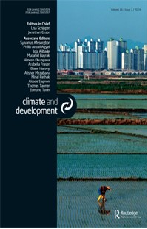
|
Ankita Ranjan Doctoral Student, Energy, Environment and Climate Change Programme A new scenario framework for equitable and climate-compatible futures https://doi.org/10.1080/17565529.2024.2365939 Co-authored with Kanitkar, T., & Jayaraman, T. (2024). A new scenario framework for equitable and climate-compatible futures. Climate and Development, 1–13. https://doi.org/10.1080/17565529.2024.2365939 |

|
Shaik Vazeed Pasha BRICS Young Scientists and Innovators Forum https://www.currentscience.ac.in/Volumes/126/05/0530.pdf Co-Authored with Sanjeev Kumar Varshney & Arindam Bhattacharyya. Current Science (00113891) 126.5 (2024). |

|
Vinay Kumar Dadhwal Remote Sensing for Mango and Rubber Mapping and Characterization for Carbon Stock Estimation—Case Study of Malihabad Tehsil (UP) and West Tripura District, India https://link.springer.com/chapter/10.1007/978-981-99-0577-5_9 Co-Authored with S.V. Pasha& K. Saketh. In: Chaudhary, S., Biradar, C.M., Divakaran, S., Raval, M.S. (eds) Digital Ecosystem for Innovation in Agriculture. Studies in Big Data, vol 121. Springer, Singapore. |

|
Shaik Vazeed Pasha Remote Sensing for Mango and Rubber Mapping and Characterization for Carbon Stock Estimation—Case Study of Malihabad Tehsil (UP) and West Tripura District, India https://link.springer.com/chapter/10.1007/978-981-99-0577-5_9 Co-Authored with V. K. Dadhwal & K. Saketh. In: Chaudhary, S., Biradar, C.M., Divakaran, S., Raval, M.S. (eds) Digital Ecosystem for Innovation in Agriculture. Studies in Big Data, vol 121. Springer, Singapore. |
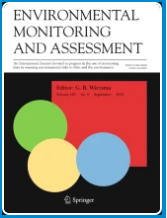
|
Vinay Kumar Dadhwal Rubber expansion and age-class mapping in the state of Tripura (India) 1990–2021 using multi-year and multi-sensor data https://link.springer.com/article/10.1007/s10661-023-10942-2 Co-Authored With S. V. Pasha & C. S. Reddy. Environmental Monitoring and Assessment. 195, 348 (2023). |
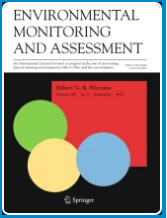
|
Shaik Vazeed Pasha Rubber expansion and age-class mapping in the state of Tripura (India) 1990–2021 using multi-year and multi-sensor data https://link.springer.com/article/10.1007/s10661-023-10942-2 Co-Authored with V. K. Dadhwal & C. S. Reddy. Environmental Monitoring and Assessment. 195, 348 (2023) |
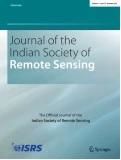
|
Vinay Kumar Dadhwal Assessing Landslide-Driven Deforestation and Its Ecological Impact in the Western Ghats: A Multi-Source Data Approach https://link.springer.com/article/10.1007/s12524-024-01896-0 Co-Authored With B. Swarada, S.V. Pasha, T. N. Manohara & H. S. Suresh. Journal of the Indian Society of Remote Sensing. 52, 1517–1531 (2024). |
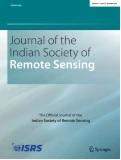
|
Shaik Vazeed Pasha Assessing Landslide-Driven Deforestation and Its Ecological Impact in the Western Ghats: A Multi-Source Data Approach https://link.springer.com/article/10.1007/s12524-024-01896-0 Co-Authored With B. Swarada,T. N. Manohara, H. S. Suresh & V. K. Dadhwal. Journal of the Indian Society of Remote Sensing. 52, 1517–1531 (2024). The influence of landslides (LS) on forest structure, composition, and functionality has gained limited scientific attention compared to socioeconomic aspects. This study aims to fill this gap by investigating the dynamics of pre- and post-LS occurrences in and around the Kali Tiger Reserve (KTR), Western Ghats. Our approach integrates multi-source, multi-temporal earth observation data, vegetation indices, field observations, and machine learning techniques. This study identified 245-LS caused due to a catastrophic rainfall event in July 2021 the most severe over a century that impacted the tropical dense forests. The present study highlights the emergence of invasive alien species (IAS), particularly Chromolaena odorata, following these landslide incidents. Field observations revealed a significant loss of large trees, which corroborated with the Global Ecosystem Dynamics Investigation (GEDI) based Canopy Height Model (CHM) and very high-resolution (VHR) data. The affected areas witnessed a significant rise in land surface temperature (LST) and a decrease in vegetation moisture. A comparative analysis with operational tree loss monitoring using optical (30-m Landsat based Global Forest Watch (GFW), and microwave (L-band Synthetic Aperture Radar (SAR) JICA-JAXA (ALOS-2) Forest Early Warning System) revealed improved performance in mapping small landslides with current approach. These results emphasize the necessity of conducting local and large scale investigations of forest dynamics before and after landslides to meet environmental commitments at various levels. The landslide events will likely induce significant alterations in the forest's microclimate. Our research recommends an immediate action plan to restore affected sites, remove IAS, and encourage the planting of native vegetation for biodiversity conservation. |
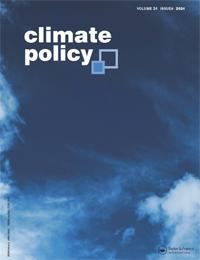
|
Tejal Kanitkar Equity assessment of global mitigation pathways in the IPCC Sixth Assessment Report https://www.tandfonline.com/doi/full/10.1080/14693062.2024.2319029 Co-Authored with Akhil Mythri & T. Jayaraman, Climate Policy This paper analyses 556 model scenarios assessed by IPCC’s Working Group-III for the 6th Assessment Report, which have an underlying 10-region classification and correspond to restricting warming levels to 1.5 ℃ and 2 ℃. We show that across all scenarios, the current global inequalities in incomes, energy use, and emissions, are projected to continue even in 2050. Scenarios also project higher per capita fossil fuel use and lower carbon dioxide removal in developed countries in 2050 compared to developing countries. Our results demonstrate the scale and scope of unequal outcomes in these scenarios, that have been anticipated by theoretical critiques of the underlying models. The paper explores the potential reasons for the unequal outcomes of the scenarios focusing on the two key issues of scenario design and modelling framework. Our analysis also suggests that instead of summary assessments focusing on singular median values or percentile ranges, as undertaken in the IPCC report, more could be learned from focusing on differences between models or considering outliers that could present new and innovative solutions to the determination of equitable and efficient future mitigation pathways. Our analysis underlines the need for new frameworks for emissions modelling and scenario building, for constructing possible futures that can also foreground equity and climate justice. |

|
A V Krishnan Exploring urban water-energy nexus: A case study of thermal power plants in Raichur and Ballari districts in Karnataka https://onlinelibrary.wiley.com/doi/10.1111/1477-8947.12507 Co-Authored with Sherin S Das, Rudrodip Majumdar and R. Srikanth, Natural Resources Forum - A United Nations Sustainable Development Journal |
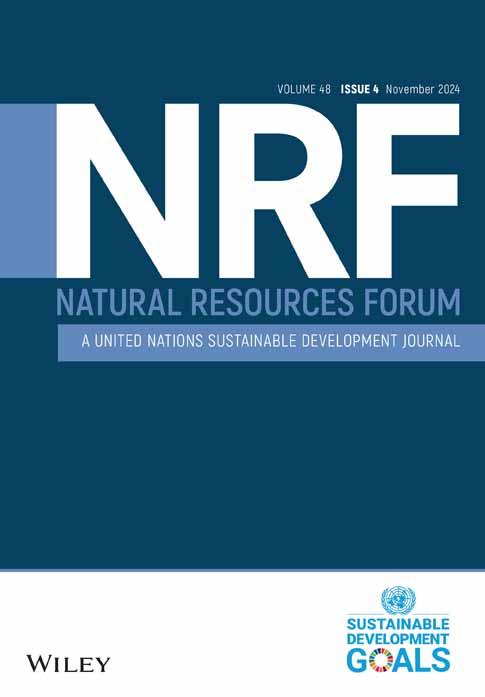
|
R Srikanth Exploring urban water-energy nexus: A case study of thermal power plants in Raichur and Ballari districts in Karnataka https://onlinelibrary.wiley.com/doi/10.1111/1477-8947.12507 Co-Authored with Sherin S Das, Rudrodip Majumdar & A.V. Krishnan, Natural Resources Forum - A United Nations Sustainable Development Journal |

|
Rudrodip Majumdar Exploring urban water-energy nexus: A case study of thermal power plants in Raichur and Ballari districts in Karnataka https://onlinelibrary.wiley.com/doi/10.1111/1477-8947.12507 Co-Authored with Sherin S Das, A.V. Krishnan, and R. Srikanth, Natural Resources Forum - A United Nations Sustainable Development Journal The paper provides a coupled framework of the water-energy nexus for the water-stressed Indian cities, weaving together multiple interlinked facets, such as the demand for drinking water, water withdrawal patterns, water-related challenges in Thermal Power Stations (TPSs), and the benefits of using treated wastewater in TPSs. An integrated approach is suggested for maximizing the benefits of wastewater reclamation, while reducing the environmental impacts of inefficient water usage, specifically in TPSs, the largest water users in the industrial sector. This is particularly important for a developing country like India that faces declining water availability due to a growing population without commensurate increases in water-use efficiency. |
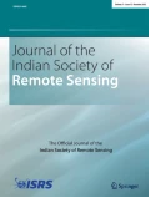
|
R Srikanth Application of Geospatial Techniques and the MCDM Method to Optimize Interlinking of Rivers in India https://link.springer.com/article/10.1007/s12524-023-01672-6 Co-authored with Ahmed, A. (2023). Application of geospatial techniques and the MCDM method to optimize interlinking of rivers in India. Journal of the Indian Society of Remote Sensing, 51(4), 849-863. |
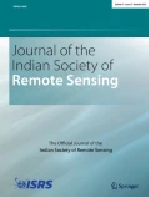
|
Aariz Ahmed Application of Geospatial Techniques and the MCDM Method to Optimize Interlinking of Rivers in India https://link.springer.com/article/10.1007/s12524-023-01672-6 Co-authored with Srikanth, R. (2023). Application of geospatial techniques and the MCDM method to optimize interlinking of rivers in India. Journal of the Indian Society of Remote Sensing, 51(4), 849-863. |
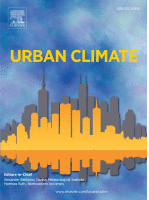
|
V P Lavanyaa Background and baseline levels of PM2.5 and PM10 pollution in major cities of peninsular India https://doi.org/10.1016/j.uclim.2023.101407 Co-authored with Harshitha, K. M., Beig, G., & Srikanth, R. (2023). Background and baseline levels of PM2. 5 and PM10 pollution in major cities of peninsular India. Urban Climate, 48, 101407. |
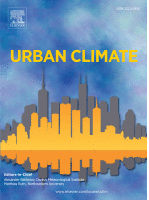
|
Gufran Beig Background and baseline levels of PM2.5 and PM10 pollution in major cities of peninsular India https://doi.org/10.1016/j.uclim.2023.101407 Co-authored with Lavanyaa, V. P., Harshitha, K. M., & Srikanth, R. (2023). Background and baseline levels of PM2. 5 and PM10 pollution in major cities of peninsular India. Urban Climate, 48, 101407. |
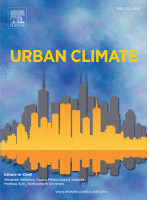
|
R Srikanth Background and baseline levels of PM2.5 and PM10 pollution in major cities of peninsular India https://doi.org/10.1016/j.uclim.2023.101407 Co-authored with Lavanyaa, V. P., Harshitha, K. M., & Beig, G., (2023). Background and baseline levels of PM2. 5 and PM10 pollution in major cities of peninsular India. Urban Climate, 48, 101407. |
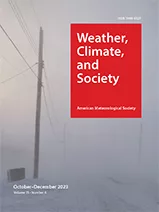
|
R Srikanth Role of Agrometeorological Advisory Services in Enhancing Food Security and Reducing Vulnerability to Climate Change https://doi.org/10.1175/WCAS-D-22-0130.1 Co-authored with Nannewar, R. G. & Kanitkar, T. (2023). Role of Agrometeorological Advisory Services in Enhancing Food Security and Reducing Vulnerability to Climate Change. Weather, Climate, and Society, 15(4), 1013-1027. |
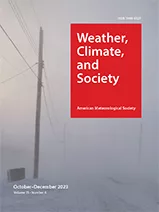
|
Tejal Kanitkar Role of Agrometeorological Advisory Services in Enhancing Food Security and Reducing Vulnerability to Climate Change https://doi.org/10.1175/WCAS-D-22-0130.1 Co-authored with Nannewar, R. G. & Srikanth, R. (2023). Role of Agrometeorological Advisory Services in Enhancing Food Security and Reducing Vulnerability to Climate Change. Weather, Climate, and Society, 15(4), 1013-1027. |
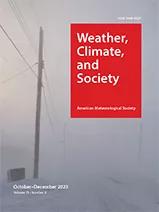
|
Rakesh G Nannewar Role of Agrometeorological Advisory Services in Enhancing Food Security and Reducing Vulnerability to Climate Change https://doi.org/10.1175/WCAS-D-22-0130.1 Co-authored with Kanitkar, T., & Srikanth, R. (2023). Role of Agrometeorological Advisory Services in Enhancing Food Security and Reducing Vulnerability to Climate Change. Weather, Climate, and Society, 15(4), 1013-1027. |

|
Hippu Salk Kristle Nathan Why India needs a Coal Mines Environment Authority https://res.us2.list-manage.com/track/click?u=4c96385cee36c21eb5f2510c4&id=1dc0103f32&e=2eb0e0e188 Co-authored with Sinha, S. K., & Srikanth, R. (2021). Why India Needs a Coal Mines Environment Authority. Economic and Political Weekly, 56(51), 32-38. Given India’s continued dependence on coal to supply 24x7 power for industrial and residential consumers at affordable prices, the country needs a unified Coal Mines Environment Authority staffed with multi-disciplinary expertise to assess and minimize the adverse environmental impacts of coal mines with an integrated approach to ensure more efficient, effective and transparent environmental governance. |

|
Sarvajeet Kumar Sinha Why India needs a Coal Mines Environment Authority https://res.us2.list-manage.com/track/click?u=4c96385cee36c21eb5f2510c4&id=1dc0103f32&e=2eb0e0e188 Co-authored with Nathan, H. S. K., & Srikanth, R. (2021). Why India Needs a Coal Mines Environment Authority. Economic and Political Weekly, 56(51), 32-38. Given India’s continued dependence on coal to supply 24x7 power for industrial and residential consumers at affordable prices, the country needs a unified Coal Mines Environment Authority staffed with multi-disciplinary expertise to assess and minimize the adverse environmental impacts of coal mines with an integrated approach to ensure more efficient, effective and transparent environmental governance. |

|
Sudha Mahalingam Regulatory framework for India’s energy security and sustainability https://doi.org/10.1016/j.enpol.2022.112815 Sinha, S. K., & Srikanth, R., (2022). Regulatory framework for India's energy security and sustainability. Energy Policy, 162, 112815. |

|
Sarvajeet Kumar Sinha Regulatory framework for India’s energy security and sustainability https://doi.org/10.1016/j.enpol.2022.112815 Co-authored with Srikanth, R., & Mahalingam, S. (2022). Regulatory framework for India's energy security and sustainability. Energy Policy, 162, 112815. |
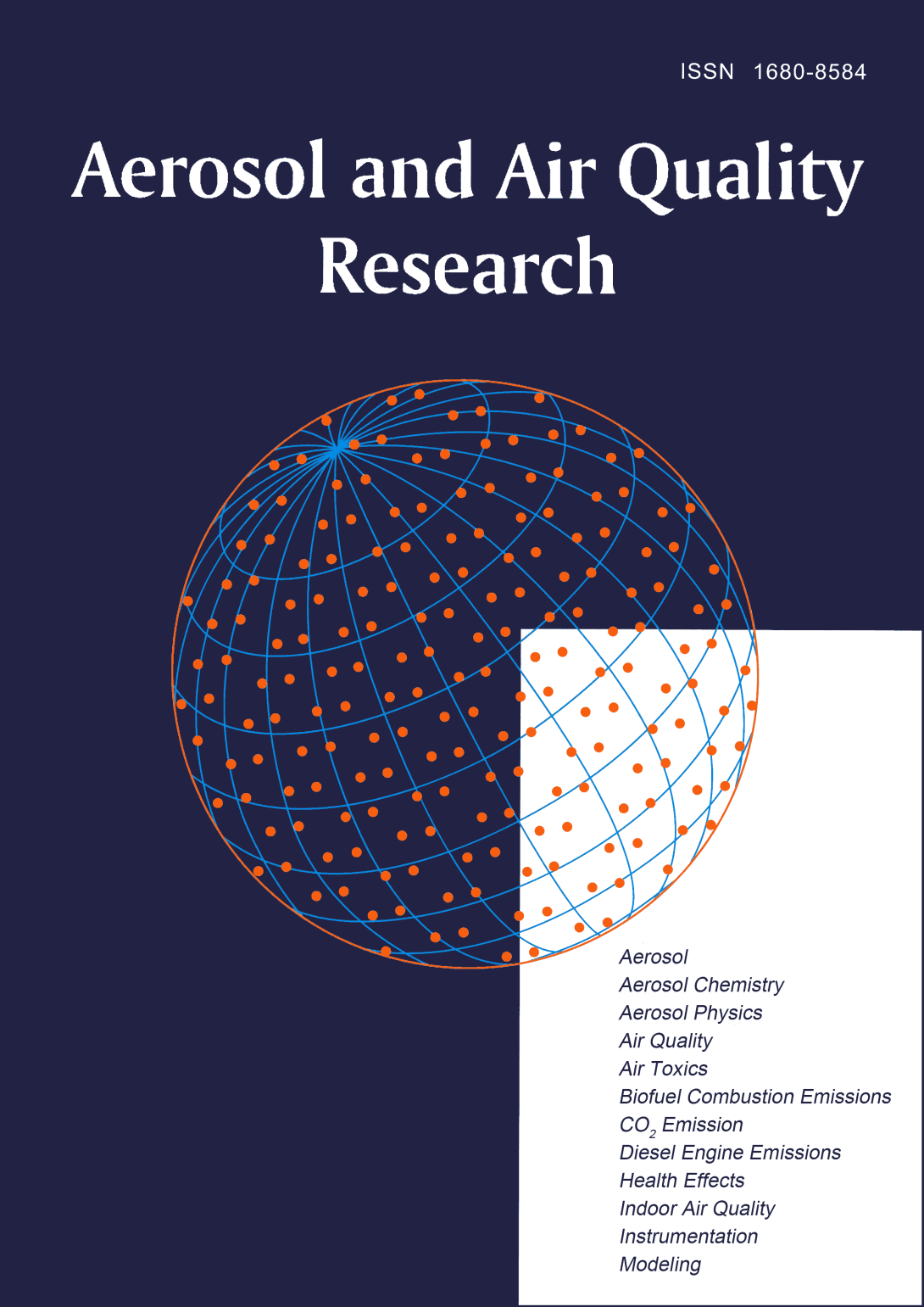
|
Rudrodip Majumdar Geospatial modelling for estimation of PM2.5 concentrations in two megacities in peninsular India https://doi.org/10.4209/aaqr.220110 Co-authored with Lavanyaa, V.P., Varshini, S., Mitra, S.S., Hungund, K.M., Srikanth, R. (2022). Geospatial Modelling for Estimation of PM2.5 Concentrations in Two Megacities in Peninsular India. Aerosol Air Qual. Res. 22, 220110. |
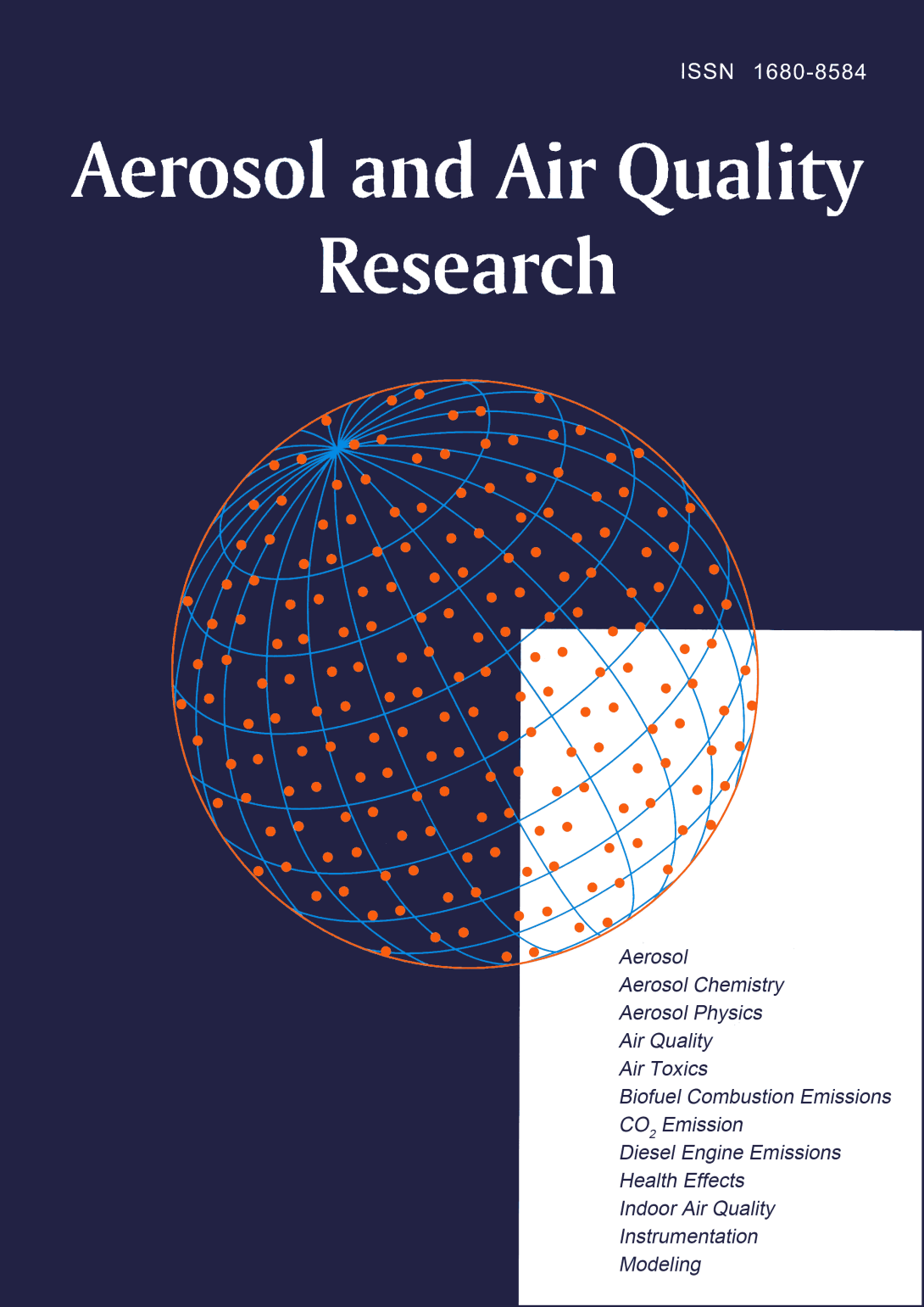
|
V P Lavanyaa Geospatial modelling for estimation of PM2.5 concentrations in two megacities in peninsular India https://doi.org/10.4209/aaqr.220110 Co-authored with Varshini, S., Mitra, S.S., Hungund, K.M., Majumdar, R., Srikanth, R. (2022). Geospatial Modelling for Estimation of PM2.5 Concentrations in Two Megacities in Peninsular India. Aerosol Air Qual. Res. 22, 220110. |

|
Rudrodip Majumdar Cost and environmental benefits of coal-concentrated solar power (CSP) hybridization in India https://doi.org/10.1016/j.energy.2021.122805 Co-authored with Kamath, H. G., Krishnan, A. V., & Srikanth, R. (2022). Cost and environmental benefits of coal-concentrated solar power (CSP) hybridization in India. Energy, 240, 122805. The levelized cost of electricity (LCOE) and environmental advantages of coal-CSP hybrid systems are presented by simulating the hybrid system in two modes at three locations in India with contrasting DNI profiles. The cost of additional energy generated due to SAFWH in booster mode is up to 51.4% less as compared to a stand-alone CSP. In the fuel saver mode, up to 40 thousand tons of coal can be annually saved with SAFWH, thus reducing CO2 emissions by 1.7% as compared to a stand-alone coal-fired plant. |

|
Harsh Kamath Cost and environmental benefits of coal-concentrated solar power (CSP) hybridization in India https://doi.org/10.1016/j.energy.2021.122805 Co-authored with Majumdar, R., Krishnan, A. V., & Srikanth, R. (2022). Cost and environmental benefits of coal-concentrated solar power (CSP) hybridization in India. Energy, 240, 122805. The levelized cost of electricity (LCOE) and environmental advantages of coal-CSP hybrid systems are presented by simulating the hybrid system in two modes at three locations in India with contrasting DNI profiles. The cost of additional energy generated due to SAFWH in booster mode is up to 51.4% less as compared to a stand-alone CSP. In the fuel saver mode, up to 40 thousand tons of coal can be annually saved with SAFWH, thus reducing CO2 emissions by 1.7% as compared to a stand-alone coal-fired plant. |

|
Chanchal Chauhan Application of Vegetation Index to Assess the Sustainability of Coal Mines in India https://res.us2.list-manage.com/track/click?u=4c96385cee36c21eb5f2510c4&id=6949fe520c&e=ffe444b6f3 Co-authored with Aariz Ahmed and Srikanth R. In: Asian Journal of Water, Environment and Pollution, Volume 19 Coal mines must incorporate social and ecological sensitivities from the planning stage up to mine closure to meet India’s Sustainable Development Goals. The Normalized Vegetation Difference Index (NDVI) is useful to assess the environmental impacts of mining operations on the air quality and vegetation around coal mines and monitor the progress of post-closure activities. |
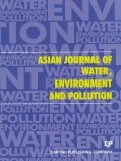
|
Aariz Ahmed Application of Vegetation Index to Assess the Sustainability of Coal Mines in India https://res.us2.list-manage.com/track/click?u=4c96385cee36c21eb5f2510c4&id=6949fe520c&e=ffe444b6f3 Co-authored with Chanchal Chauhan, and Srikanth R. In: Asian Journal of Water, Environment and Pollution, Volume 19 Coal mines must incorporate social and ecological sensitivities from the planning stage up to mine closure to meet India’s Sustainable Development Goals. The Normalized Vegetation Difference Index (NDVI) is useful to assess the environmental impacts of mining operations on the air quality and vegetation around coal mines and monitor the progress of post-closure activities. |

|
R Srikanth A balanced scorecard to enable electricity distribution sector reforms in India https://www.sciencedirect.com/science/article/abs/pii/S1040619023000696 Co-authored with Soumya Deep Das (2023). A balanced scorecard to enable electricity distribution sector reforms in India. The Electricity Journal, 36(6), 107302. The performance of the State-owned electricity distribution companies (DISCOMs) that distribute 96% of the electricity in India is critical for the country’s energy security. However, the current studies are not suitable for assessing the performance of India’s DISCOMs in an integrated manner since their underlying models are fragmented. This study presents the development and application of an integrated FOBC framework which is a balanced scorecard including 32 key performance indicators related to finance, operations, business processes, and customer service. This framework is used to benchmark the performance of 40 DISCOMs in 17 States on a like-to-like basis leading to the identification of nine DISCOMs for restructuring. The FOBC framework can be used by the regulators and the government to benchmark DISCOM performance in a holistic manner. This study will be useful for policymakers to implement power distribution sector reforms to enhance energy security while decarbonizing the power sector efficiently. |

|
R Srikanth Affordable and sustainable transportation: Key drivers and policy choices for a megacity in India https://www.sciencedirect.com/science/article/pii/S2213624X23001153?dgcid=coauthor Co-Authored with Tanmay Ghosh, Tejal Kanitkar. Case Studies on Transport Policy 13: 101061. |

|
Tejal Kanitkar Affordable and sustainable transportation: Key drivers and policy choices for a megacity in India https://www.sciencedirect.com/science/article/pii/S2213624X23001153?dgcid=coauthor Co-Authored with Tanmay Ghosh, R. Srikanth. Case Studies on Transport Policy 13: 101061. |

|
Rakesh G Nannewar Fulfilling Domestic Water Demand in Semiarid Regions of North Karnataka: Challenges and Way Forward https://journals.sagepub.com/eprint/HCYDFYX5NASKYRC8VAAI/full Co-authored with Aariz Ahmed, Juhi Chatterjee, Rakesh Gomaji Nannewar, & R. Srikanth. International Journal of Rural Management, Sage Publication The 2030 Agenda for Sustainable Development, under Goal 6 (SDG 6), aims to ensure universal access to water and sanitation. SDG-6.1 focuses on achieving safe drinking water for all by 2030. India's Jal Jeevan Mission (JJM) targets providing tap water to rural households by 2024. This article discusses a study on water demand and availability in seven villages in Ballari and Raichur districts, North Karnataka. It reveals heavy reliance on groundwater due to inadequate surface water. Only 14% of households meet JJM standards, with projected worsening scarcity. The authors recommended a revised Krishna (Almatti)–Pennar river interlinking project by 2030 to minimize environmental and social impact, which is crucial for North Karnataka's sustainable development. |
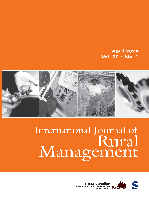
|
R Srikanth co-authored Fulfilling Domestic Water Demand in Semiarid Regions of North Karnataka: Challenges and Way Forward https://journals.sagepub.com/eprint/HCYDFYX5NASKYRC8VAAI/full Co-authored with Aariz Ahmed., Juhi Chatterjee., & Rakesh Gomaji Nannewar. International Journal of Rural Management, Sage Publication The 2030 Agenda for Sustainable Development includes Goal 6 (SDG 6): ‘Ensure availability and sustainable management of water and sanitation for all’. SDG target 6.1 aims to achieve by 2030 ‘universal and equitable access to safe and affordable drinking water for all’. The Government of India has also launched the Jal Jeevan Mission (JJM) to provide potable tap water to every rural household by 2024. In this context, this article explains the findings of a study to assess the domestic water demand and the availability of water in seven villages in the Ballari and Raichur districts in North Karnataka. This study indicates that groundwater is predominantly used for domestic purposes in these districts due to the lack of adequate and reliable surface water. Only 14% of households in the study area receive adequate water as per the JJM norms and this water stress is projected to worsen due to the increasing supply–demand mismatch in the future. The authors recommend the implementation of the revised configuration of the Krishna (Almatti)–Pennar river interlinking project by 2030 since this alignment is optimised to reduce project-related deforestation, people displacement, project duration and costs. This is critical for the sustainable development of North Karnataka. |

|
Rudrodip Majumdar Study of Different Flow Configurations of Radial Flow Annular Reactor for Thermochemical Energy Storage https://ishmtdigitallibrary.com/conferences/1654896405e56590,4869f8107409fb40,1db7aa3949ff4ce5.html Co-Authored with Ankush Shankar Pujari, Chandramouli Subramaniam and Sandip Kumar Saha. Proceedings of the 27th National and 5th International ISHMT-ASTFE Heat and Mass Transfer Conference December 14-17, 2023, IIT Patna, Bihar, India. pp.821-826 Thermochemical energy storage is emerging as a promising seasonal thermal energy storage technology. Strontium Bromide has recently become one of the most used salt hydrates for the salt-hydrate and moist airbased open thermochemical energy storage system. This article suggests that radial flow fixed bed reactors offer advantageous configurations owing to their lower pressure drop without compromising thermal performance. Four possible configurations of radial flow fixed bed reactors, Inward flow Π-type, Inward flow Z-type, Outward flow Π-type, and Outward flow Z-type, are analyzed in detail. Energy efficiency, exergy efficiency, pressure drop, and non-dimensional constant named non-uniformity are used as performance metrics for comparing the proposed configurations with four different combinations of flow rates and aspect ratios. It is found that the type of the reactor configuration (Π-type or Z-type) has a negligible impact on the performance, with a maximum change of 4% in the energy efficiency during the hydration phase. The inward and outward flow arrangements exhibit considerable differences in performance, with inward flow having 3.5 times higher exergy efficiency than outward flow. The π-type configuration shows the highest non-uniformity of -0.22 for an aspect ratio of four, with a flow rate of 50 m3/h. |

|
Rudrodip Majumdar Experimental Investigation of Stratified Sensible Thermal Energy Storage Using Silicone Oil https://ishmtdigitallibrary.com/conferences/1654896405e56590,4869f8107409fb40,0c4f817f7c68d265.html Co-Authored with Anas A.E Ahmed And Sandip Kumar Saha. Proceedings of the 27th National and 5th International ISHMT-ASTFE Heat and Mass Transfer Conference December 14-17, 2023, IIT Patna, Patna-801106, Bihar, India. pp.827-832 This study experimentally investigates the scarcely studied stratified, oil-based sensible thermal energy storage (STES) tank, to examine the heat retention capability of Hytherm-600 silicone oil during the standalone period and its heat dispatchability during the discharging process. To conduct an experimental study on the thermic oil, a vertical cylindrical tank with a helical discharging coil fitted inside is used. Three different oil charging temperatures (50, 70, and 90 °C), and three different discharging flow rates (water) through the helical coil (0.5, 1.25, and 2 L/min) have been considered. The thermal stratification phenomena in oil and the evolution of thermocline have been investigated. Results indicate the formation of a thermocline zone of 154 mm thickness in the lower portion of the tank within 3 h from the commencement of the stand-alone period. The discharging operation fluctuates the thermocline stability in the storage medium (i.e., commercial thermic oil Hytherm-600). During the discharging operation, a water flow rate of 0.5 L/min through the helical coil led to higher discharging efficiencies owing to better heat transfer attributable to the higher water residence time inside the coil. For the aforesaid water flow rate, the average discharging efficiencies are 85.6%, 75.6%, and 81.6% for the charging temperatures of 50, 70, and 90 °C, respectively. Finally, the primary thermocline thickness is found to be constant at 82 mm following the splitting of the initial thermocline during the discharging operation. |

|
Rudrodip Majumdar Societal Impact through eCooking Transition - Observations & Reflections https://mecs.org.uk/blog/societal-impact-through-ecooking-transition-observations-reflections/ Modern Energy Cooking Services (MECS) Blog A large-scale socio-cultural transition such as the ‘shift toward eCooking’ is a process (or a journey) rather than a destination. Apart from the business potential it offers, it would potentially create a large number of aware and educated citizens. Strengthening appliance and vessel manufacture would reinforce the country’s domestic MSME sector. Improved eCooking appliance safety culture would enhance manufacturers’ competitiveness (and also acceptability) globally. Academic training on energy efficiency, environmental benefits, nutritional benefits associated with eCooking, and hands-on training for appliance manufacturing, demonstration, servicing, and repairing, will lead to large capacity building in the country. The formation of efficient public relations channels would help improve the transparency of communication across the whole ecosystem encompassing industry, entrepreneurs, innovators, educators, policymakers, and consumers. |
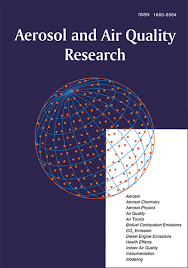
|
Gufran Beig Assessment and Quantification of Methane Emission from Indian Livestock and Manure Management https://aaqr.org/articles/aaqr-23-08-bc-0204 Co-Authored with Samal, A., Sahu, S.K., Mishra, A., Mangaraj, P., Pani, S.K., Aerosol and Air Quality Research, 230204, 2024 Methane (CH4) is one of the most abundant organic trace gases in the atmosphere having a strong global warming potential of 28 in 100 years, is a significant GHGs, and has a vital role in atmospheric chemistry and climate change. India is home to the largest number of livestock in the world and is responsible for higher methane emissions from enteric fermentation and manure management. In the present study, the methane emissions from Indian livestock, i.e., enteric fermentation, is estimated to be 11.63 Tg yr-1 in 2019 using IPCC methodology and recent census livestock activity data from the Department of Animal Husbandry and Dairying, Govt. of India, and corresponding country-specific revised emission factors. The CH4 emissions from livestock manure management system was found to be 1.11 Tg yr-1, resulting in 12.74 Tg yr-1 of CH4 emission from the Indian livestock sector. The district-level spatial CH4 emission pattern was developed to identify the potential emission hotspots across the country. Initial findings suggest that changing livestock population patterns plays an important role in governing methane emissions in rural India. The information generated could be important tools for policymakers to control methane emissions across the country. |
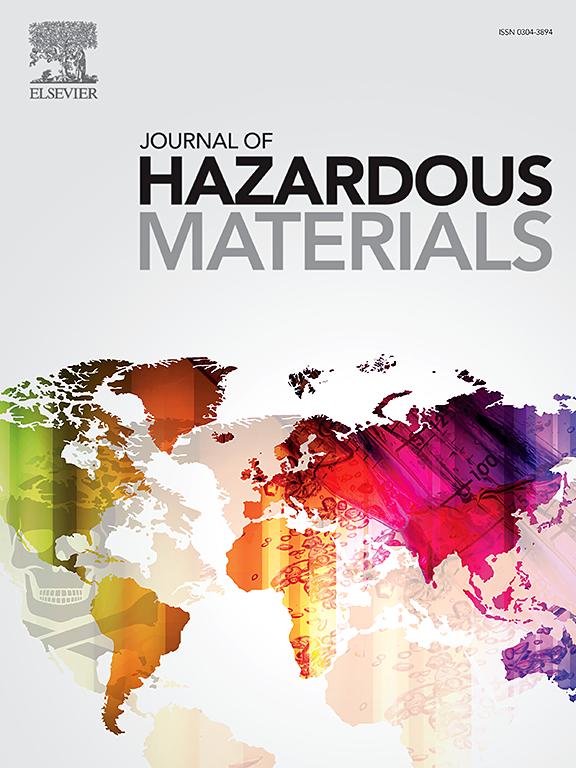
|
Gufran Beig Quantification and assessment of hazardous mercury emission from industrial process and other unattended sectors in India: A step towards mitigation https://www.sciencedirect.com/science/article/abs/pii/S0304389424006824?via%3Dihub= Co-Authored with Sahu, S.K., M. Mishra, A. Mishra, P. Mangaraj. Journal of Hazardous Materials 470:134103, 2024 Hazardous pollutants like Mercury (Hg) have emerged as a pressing challenge in recent times where the expanding industrial sector is regarded as the major source in developing country India. In this study, we are trying to identify all possible industrial sectors at district level to quantify Hg emission load across India for the year 2019 using IPCC methodology where the country-specific technological emission factors are used. We have included 5 major sectors out of which emission from coal combustion in thermal power plants accounts for 186.5 t/yr of Hg emission followed by non-ferrous metal production (88.3 t/yr), captive power plants (65.5 t/yr) and fly ash generation from various manufacturing industries (45.9 t/yr). A total of 459.4 t/yr of Hg is released into the ecosystem in 2019 with an uncertainty of ± 48%. This study also estimated that about 233 million people living in and around 10 km periphery of major industrial zones with as many as 17 million people residing near the 10 major hotspots are susceptible to hazardous Hg emissions directly or indirectly. This information would be quite useful in formulating future Hg emission control strategies in India. |

|
Aariz Ahmed co-authored Fulfilling Domestic Water Demand in Semiarid Regions of North Karnataka: Challenges and Way Forward https://journals.sagepub.com/eprint/HCYDFYX5NASKYRC8VAAI/full Co-authored with Juhi Chatterjee, Rakesh Gomaji Nannewar, & R. Srikanth. International Journal of Rural Management, Sage Publication The 2030 Agenda for Sustainable Development, under Goal 6 (SDG 6), aims to ensure universal access to water and sanitation. SDG-6.1 focuses on achieving safe drinking water for all by 2030. India's Jal Jeevan Mission (JJM) targets providing tap water to rural households by 2024. This article discusses a study on water demand and availability in seven villages in Ballari and Raichur districts, North Karnataka. It reveals heavy reliance on groundwater due to inadequate surface water. Only 14% of households meet JJM standards, with projected worsening scarcity. The authors recommended a revised Krishna (Almatti)–Pennar river interlinking project by 2030 to minimize environmental and social impact, which is crucial for North Karnataka's sustainable development. |

|
C P Rajendran The Rumbling Earth: The Story of Indian Earthquakes https://www.penguin.co.in/book/the-rumbling-earth/ Co-authored with Kusala Rajendran. Vintage .ISBN: 9780670095612 The renowned seismologists C.P. Rajendran and Kusala Rajendran offer a riveting story of the Indian earthquakes, their science, history and impact. Like all other natural phenomena, earthquakes are part of life-sustaining forces-- the creators of the mountains, valleys and springs or even deserts on Earth-- a theatre where the show never ends. The book takes the readers to some exciting parts of India to show how earthquakes change the topography where a sea existed not far in the past-- now a salt marsh, affecting the social life, trade and livelihood. The book discusses the likelihood of the next big earthquake in the Himalayas against the backdrop of the devastating earlier ones revealed by archaeology, history and geology. It probes the causes and aftermath of the devastating Indian Ocean tsunami of 2004 and gives a glimpse of the past. The high-impact earthquakes will happen, but they need not always end up as human catastrophes. The authors have spent much of their professional lives studying the earthquakes in India and abroad. They tell us from their vast experience how to negotiate the impacts of earthquakes and related hazards by following science-based strategies. |

|
Rudrodip Majumdar Technological Trends in Electric Passenger Car Segment in India and Medium-Term Demand for Magnet-Based Rare Earth Materials https://www.igi-global.com/chapter/technological-trends-in-electric-passenger-car-segment-in-india-and-medium-term-demand-for-magnet-based-rare-earth… Co-authored with Arpita Pandey. in D. Lakshmi et al. (eds.) E-Mobility in Electrical Energy Systems for Sustainability, pp. 321-342, IGI Global. The green mobility aspirations of India have necessitated substituting conventional vehicles with electric motor-driven counterparts. The rare earth permanent magnet-based motor is the dominant solution for electric vehicle motor architectures as it ensures energy efficiency with reduced kerb weight and increased vehicle range. This study estimates the magnet-based rare earth demand for the realistic aspirational growth trajectories of electric four-wheelers up to 2030. During the first phase (2021-25), a high year-on-year growth rate for the e-car segment is assumed, which creates the base for electric vehicle penetration, whilst the second phase (2026-30) envisages a rapid product substitution at the cumulative level by 2030. The estimated total demand for rare earth materials during 2021-30 is between 1434 and 3584 tonnes. Analysis indicates that India could leverage its strong position in the global automotive market and geopolitical proximity to the favourable global powers for collaboration in research and development, technology transfer, and securing raw material supply. |
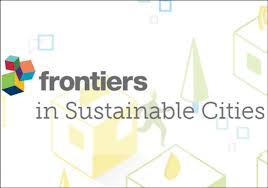
|
Gufran Beig Anthropogenic trace gases and their linkages to meteorology and climate change https://www.frontiersin.org/articles/10.3389/frsc.2024.1379626/full Co-Authored with Yadav R, Anand V, Sahu SK, Kunchala, RK, Tyagi B. Frontier in Sustainable Cities, Vol.6 |
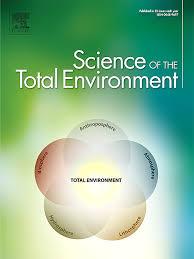
|
Gufran Beig Triple dip La-Nina, unorthodox circulation and unusual spin in air quality of India https://www.sciencedirect.com/science/article/abs/pii/S0048969724011021?via%3Dihub= Co-Authored with V. Anand, N. Korhale, S.B. Sobhana, K.M. Harshitha & R.H. Kripalani. Science of The Total Environment, Vol.920:170963, 2024. |
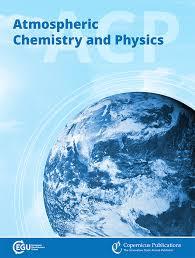
|
Gufran Beig Quantifying effects of long-range transport of NO2 over Delhi using back trajectories and satellite data https://acp.copernicus.org/articles/24/789/2024/ Atmospheric Chemistry and Physics, 24 (2), 789-806, 2024. |

|
G Parthasarathy Recent Studies on Volcanic Materials and Chemistry of the Earth’s Interior – An Indian Perspective https://link.springer.com/journal/12594 Co-Authored with N. V. Chalapathi Rao. Journal of the Geological Society of India 100(2) : 159-167 |

|
Rudrodip Majumdar Improved realistic stratification model for estimating thermocline thickness in vertical thermal energy storage undergoing simultaneous charging and discharging https://www.sciencedirect.com/science/article/abs/pii/S2352152X24000756?via%3Dihub= Co-authored by Hitesh Khurana and Sandip Kumar Saha. Journal of Energy Storage 82:110490.2024 Simultaneous charging and discharging operations of thermal energy storages render effective energy-harnessing features. However, it leads to thermocline formation due to the dynamic interplay between energy input, energy extraction, and losses. Reliable retention of good thermodynamic quality of energy is realized by minimizing the energy degradation and thermocline thickness. Near real-time tracking of heat content degradation is a tedious task for real-sized storage systems, which involves accurate quantification of the temporal evolution of thermocline thickness. A few simplified, one-dimensional energy-based models are available for tracking the movement of the thermocline layer inside the thermal energy storage tank. However, these models largely assume the thermocline layer to be a thin horizontal plane within the tank, without quantifying the thermocline thickness. In this study, a reduced-order realistic stratification (RS) model has been developed for the vertical cylindrical tank equipped with an immersed helical discharging coil, working under dual-dynamic mode. For evaluating the thermocline thickness, the prediction equations for the average temperatures in the upper and the lower regions of the tank are formed using a machine-learning-based technique, considering a reasonably wide range of operating and geometrical parameters. The developed model utilizes approximate formulations for the average temperatures of the upper and lower regions of fluid within the storage tank, coil outlet temperature, and the overall average temperature of working fluid. For the larger storage tank (155 L), the thermocline thickness predicted by the new RS model is 738.26 mm at the end of simultaneous charging and discharging operation, whereas that estimated by detailed numerical simulation is 798.12 mm. This improved model reduces the computational time by about 80 % owing to effective approximations and can be used for a reasonably accurate rapid assessment of thermal degradation in the storages deployed for low-temperature solar thermal applications, including domestic hot water systems. |
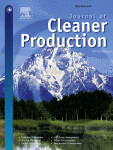
|
Rudrodip Majumdar co-authored Sub-segment-based approach for assessing growth and energy transition trajectories of Indian two-wheelers https://www.sciencedirect.com/science/article/abs/pii/S0959652623037174 Co-Authored with Kumar Saurabh. Journal of Cleaner Production 430: 139559. 2023 The transition trajectory of India's two-wheeler (2W) vehicle segment is studied using a sequential modelling framework for projecting sub-segment-wise 2W fleet, energy demand, and associated CO2 emissions. Road density per capita was identified as a more significant explanatory variable than GDP per capita in estimating 2W fleet size in India. The elasticity method was used to evaluate the 2W vehicle saturation level based on five different indirect parameters. It was found that population density had the highest impact (48%), followed by urbanization (31%) and adult population share (16%). The impact of the total cost of ownership was negligible. The mean 2W vehicle saturation level was calculated to be 314 while the ownership was found to be 207, 265, and 297 vehicles per 1000 people by 2030, 2040, and 2050, respectively. Scooters were found to be leading the e-transition of 2Ws but a successful e-transition of India's 2Ws would not be achieved without transitioning the motorcycles. Two motorcycle clusters were identified that offer economies of scale towards e-transitioning. Closer scrutiny of six plausible e-transition scenarios showed that a 50% penetration of E−2Ws is unattainable before 2045. The biggest obstacle in achieving high E−2W penetration in India would be the limited capacity to supply indigenously produced vehicles. A high import dependence on battery technology and critical raw materials would limit the energy transition and diversification of the Indian road transport sector. India should follow the mass adoption-driven diffusion pathway in the short-to-medium term and the affordability-constraint diffusion pathway in the long term to achieve the best results in terms of reduction in energy demand and associated emissions for the 2W segment. The gains from the e-transition of the road transport sector would not be substantial without a simultaneous transition in the country's electricity generation mix away from coal-based thermal power. |
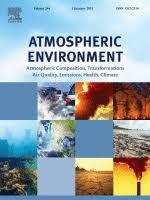
|
Gufran Beig Model simulation of carbonaceous fine particulate matter using SAFAR emission inventory and comparison with EDGAR-HTAP simulations https://doi.org/10.1016/j.atmosenv.2023.120147 Co Authored with P. Kumar, V. Singh, S. K. Sahu, , D. Siingh and B. R. Bamniya. Atmospheric Environment, 315:120147 In this study, the evaluation of carbonaceous fine particulate matter (C-PM) was conducted using the SAFAR-India regional model. Two emission inventories were utilized: the newly developed SAFAR inventory and the global EDGAR-HTAP inventory, both for the year 2018. The simulation aimed to capture the seasonal and spatial patterns of black carbon (BC) and organic carbon (OC) concentrations. To validate model results, surface meteorological parameters, and C-PM concentrations were compared with the MERRA reanalysis data for the Indian region. Model simulated surface C-PM concentration with SAFAR emission inventory is found to be slightly overestimated (1.10), whereas simulated results with EDGAR emission inventory is significantly underestimated as compared to MERRA data. Model-simulated meteorological parameters showed a better correlation with MERRA reanalysis. Simulated geographical patterns of seasonal mean C-PM with SAFAR emission inventory exhibit quite a better comparison with MERRA reanalysis as against EDGAR simulated results. However, some differences in the present results are visible, particularly over the IGP region, as compared to MERRA data, but they are mainly attributed to a significant difference in the special resolution of present results (much finer) as compared to coarser MERRA data. In the Indo-Gangetic Plain (IGP) region, the concentration of BCSF and OCSF (BC and OC with SAFAR emission, respectively) show the peak during the winter, followed by the post-monsoon season. Although the correlation coefficients of hourly time series of surface BCSF and OCSF concentrations with MERRA over India are high (0.92 and 0.88), the poor RMSE, is attributed mainly to different scales of resolution. The model simulated BC, and OC concentrations with SAFAR emission input capture the pattern of spatial distribution reasonably well. The present evolution of BC and OC will help to better quantify their impact on climate and atmospheric conditions over the Indian region. |

|
Rudrodip Majumdar Assessing End-of-Life Room Air Conditioner Recycling Potential for Sustainable Resource Utilization in India: A Case Study for Reducing Environmental Burden https://link.springer.com/chapter/10.1007/978-3-031-41013-0_3 Co Authored with Arpita Pandey. Springer Edited Volume entitled "Anthropogenic Environmental Hazards: Compensation and Mitigation"; Pankaj Pathak, Rajiv Ranjan Srivastava, Sadia Ilyas (Eds.) The escalated demand for rare earth materials is anticipated as a major roadblock to the aspirational ‘green and energy-efficient transition’ since it could lead to raw material shortage. Therefore, recycling essential components from the air conditioner units is envisaged as a suitable solution for sustaining the product supply chain. |

|
Dinesh Kumar Srivastava Myriad Ways in Which Things Could Have Gone Wrong but Did Not https://link.springer.com/chapter/10.1007/978-981-99-5005-8_22 In: Chirayath, S.S., Sai Baba, M. (eds) Human Reliability Programs in Industries of National Importance for Safety and Security. Risk, Reliability and Safety Engineering. Springer, 2023 The Variable Energy Cyclotron Center (VECC) at Kolkata has a K130 room-temperature cyclotron that has been operating since 1977, a K500 Cyclotron operating since 2009, a K30 medical cyclotron and a radioactive ion beam facililty. It has a large number of very high voltage or very high current power supplies, liquid helium plants, and very many vacuum pumps sophisticated and delicate equipment. Yet, in the last more than 5 decades of its operation there have been no serious accidents or leakage of radioactivity. This has been possible by a strict regime of retraining and strict adherence to standard security precaution, and an active and understanding leadership. This chapter describes some of these efforts. |

|
Rudrodip Majumdar Annular vertical cylindrical thermochemical storage system with innovative flow arrangements for improved heat dispatch towards space heating requirements https://www.sciencedirect.com/science/article/pii/S0960148123010832?dgcid=author Co-Authored with Ankush Shankar Pujari, Sandip K. Saha, Chandramouli Subramaniam. Renewable Energy 127: 119168. This study evaluates the performance of the vertical cylindrical annular reactor configuration, considering innovative radial airflow configurations. From a detailed parametric study, the most suitable reactor geometry and flow arrangement have been identified based on standard performance metrics. |
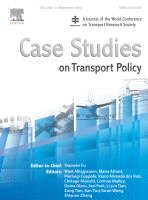
|
Tanmay Ghosh Affordable and sustainable transportation: Key drivers and policy choices for a megacity in India https://www.sciencedirect.com/science/article/pii/S2213624X23001153?dgcid=coauthor Co-Authored with Tejal Kanitkar, R. Srikanth. Case Studies on Transport Policy 13: 101061. |
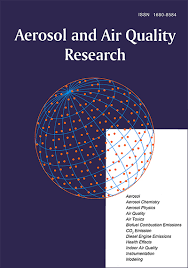
|
Gufran Beig Identification and Quantification of Emission Hotspots of Air Pollutants over Bhubaneswar: A Smart City in Eastern India https://aaqr.org/articles/aaqr-23-03-oa-0049 Co-Authored with Saroj Kumar Sahu, Pallavi Sahoo, Poonam Mangaraj, Bhishma Tyagi, Basanta Samal, Ashirbad Mishra, Ravi Yadav. Aerosol and Air Quality Research 23(9). Considering the need to identify the sources of air pollution in smart city Bhubaneswar, a non-attainment city in India, a high-resolution comprehensive gridded emission inventory (EI) of eight primary air pollutants has been developed for the base year 2018. The inventory involves detailed activity data with ~0.4 km × ~0.4 km resolution covering the city using a Geographical Information System (GIS) based statistical approach. In total, ~17 major and minor sectors are responsible for the city’s air pollution crisis. Windblown road dust, transport sector, and residential cooking activities emerged as the dominating sources. Emissions of CO, NOx, SO2, VOC, PM2.5, PM10, BC, and OC are estimated to be 112 Gg yr–1, 44 Gg yr–1, 11 Gg yr–1, 73 Gg yr–1, 9 Gg yr–1, 17 Gg yr–1, 5 Gg yr–1 and 0.8 Gg yr–1 respectively. Nearly 14% and 12% area of the entire study domain are found to be responsible for almost half of PM10 and NOx emissions respectively. The central region of the city with the presence of national highways, major roads, and nearby industrial belts, experiences maximum emission of pollutants. The present gridded surface emission dataset is an essential requirement in framing new mitigation strategies to combat ongoing and future air pollution crises and achieve better air quality. |
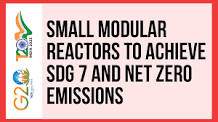
|
R Srikanth Small Modular Reactors to Achieve SDG 7 and Net Zero Emission Task Force 6: Accelerating SDGs: Exploring New Pathways to the 2030 Agenda. T20 Policy Brief, July 2023. |

|
Gufran Beig, Saroj Kumar Sahu, Poonam Mangaraj Decadal growth in emission load of major air pollutants in Delhi https://doi.org/10.5194/essd-15-3183-2023 Co-authored with Saroj Kumar Sahu, Poonam Mangaraj, Earth System Science Data 15(7):3183–3202 The Indian capital megacity of Delhi is reeling under deteriorating air quality, and control measures are not yielding any significant changes, mainly due to a poor understanding of sources of emissions; hence, priority option in mitigation planning is lacking. In this paper, we have made an attempt to develop a spatially resolved technological high-resolution gridded () emission inventory for eight major pollutants of the Delhi region where high-resolution activity data of all possible major and unattended minor sources are generated by organizing a mega-campaign involving hundreds of volunteers. It is for the first time that we are able to estimate the decadal growth in emissions of various pollutants by comparing newly developed 2020 emissions with SAFAR (System of Air Quality and Weather Forecasting and Research) emissions of 2010 using the identical methodology and quantum of activity data. The estimated annual emissions for PM2.5, PM10, CO, NOx, VOC, SO2, BC, and OC over the Delhi National Capital Region (NCR) are estimated to be 123.8, 243.6, 799.0, 488.9, 730.0, 425.8, 33.6, and 20.3 Gg yr−1, respectively, for the year 2020. The decadal growth (2010–2020) in PM2.5 and PM10 is found to be marginal at 31 % and 3 %, respectively. The maximum growth is found to be in the transport sector followed by the industrial and other sectors. Maximum decadal growth found for the pollutants BC, OC, and NOx is 57 %, 34 %, and 91 %, respectively. The decadal shift of sectorial emissions with changing policies is examined. The complete dataset is available on Zenodo at https://doi.org/10.5281/zenodo.7715595 (Sahu et al., 2023). Saroj Kumar Sahu, Poonam Mangaraj |

|
Soumya Deep Das A balanced scorecard to enable electricity distribution sector reforms in India https://www.sciencedirect.com/science/article/abs/pii/S1040619023000696 Co-authored with Srikanth, R. (2023). A balanced scorecard to enable electricity distribution sector reforms in India. The Electricity Journal, 36(6), 107302. The performance of the State-owned electricity distribution companies (DISCOMs) that distribute 96% of the electricity in India is critical for the country’s energy security. However, the current studies are not suitable for assessing the performance of India’s DISCOMs in an integrated manner since their underlying models are fragmented. This study presents the development and application of an integrated FOBC framework which is a balanced scorecard including 32 key performance indicators related to finance, operations, business processes, and customer service. This framework is used to benchmark the performance of 40 DISCOMs in 17 States on a like-to-like basis leading to the identification of nine DISCOMs for restructuring. The FOBC framework can be used by the regulators and the government to benchmark DISCOM performance in a holistic manner. This study will be useful for policymakers to implement power distribution sector reforms to enhance energy security while decarbonizing the power sector efficiently. |

|
Rudrodip Majumdar Functional Use-Based Positioning of Conventional Vehicles in Conjunction with Alternate Low-Emission Fuels https://link.springer.com/chapter/10.1007/978-981-99-1392-3_5 Co-authored with Kumar Saurabh, Renewable Fuels for Sustainable Mobility Edited by Pravesh Chandra Shukla, et al. Springer, Singapore. It is necessary to consider alternate fuels for ICE-based vehicles to achieve decarbonization in India’s road transport sector. This study discusses the ICE-based alternate fuel options (natural gas, auto-gas and hydrogen) in the light of 28 identified parameters under the 4A framework of energy security, encompassing technical availability, resource availability, infrastructure accessibility, price affordability, social acceptability and environmental acceptability. |

|
Gufran Beig, R Srikanth, Shailesh Nayak National Air Quality Resource Framework of India (NARFI) (NIAS/NSE/EECP/U/WR/01/2023) http://eprints.nias.res.in/2500/ Beig, Gufran and Mohanthy, M and Srikanth, R and Nayak, Shailesh (2023) National Air Quality Resource Framework of India (NARFI), (NIAS/NSE/EECP/U/WR/01/2023). Report. NIAS, Bengaluru. Air pollution is serious and most talked about issue in India as impacts are fast realized in a shorter time, unlike climate change. North India including the Indian capital experience extreme levels of pollution during winters due to extreme weather compounded by biomass burning episodes. On the other hand, Western India often witnesses pollution extremes during summer due to intercontinental dust flows whereas the peninsular and east India relatively remain better, but the frequency of weather extremes is increasing, and climate change is impacting the delicate balance. It is resulting in deteriorating health and food security. The problem is well recognized, but information and actions are fragmented warranting an integrated approach to build a resource framework for air quality in a mission mode. Network of specialists working on various aspects of air pollution and knowledge sharing for optimal and broad-scale results that benefit all. To address this gap, the National Institute of Advanced Study (NIAS, IISc Campus, Bengaluru) organized the brainstorming workshop for stakeholders along with the office of Principal Scientific Advisor to Govt. of India to help develop pathways for dialogue and knowledge sharing for air pollution information, alerts, capacity building, effective mitigation, and policy at the national level. The current strategic document is an outcome of this effort. This NARFI aims to build an integrated framework in air quality for a sustainable future by bringing together researchers, practitioners, and experts from diverse sectors and disciplines – air quality monitoring, health, and social inclusion, livelihoods, knowledge management, and communication, as well as those dealing with open burning, transport sectors, etc. Also, regional pollution issues like stubble burning, smog, and fog –to share their knowledge and experience on air pollution. The framework will support the public-industry partnership in air quality management that has the potential to influence decision-makers. |

|
Rudrodip Majumdar Thermochemical Energy Storage Using Radial Flow Annular Reactor for Attaining Lower Pressure Drop https://avestia.com/MHMT2023_Proceedings/files/paper/ENFHT/ENFHT_170.pdf Co-authored with Ankush Shankar Pujari and Sandip Kumar Saha. Proceedings of the 8th World Congress on Momentum, Heat and Mass Transfer (MHMT 2023), March 26 - 28, 2023, Lisbon, Portugal (ISBN: 978-1-990800-17-7) The auxiliary power required in the form of electrical energy for blowing the air through the packed bed reactor is an important consideration since it depends on various design parameters of the system. A radial flow annular reactor configuration is proposed in the present study. It shows a 65%-80% reduction in the flow work requirement. The parameters, such as the flow direction and flow rate, need to be optimized for better performance and to ensure lesser flow work requirements. |
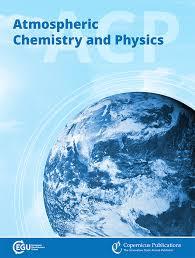
|
Gufran Beig Simulating organic aerosol in Delhi with WRF-Chem using the VBS approach: Exploring model uncertainty with a Gaussian Process emulator https://acp.copernicus.org/preprints/acp-2022-463/ Co-authored with Reyes-Villegas, E., et al. Atmospheric Chemistry and Physics (ACP), Copernicus Publications The nature and origin of organic aerosol in the atmosphere remain unclear. Paper proposes a mechanism and parameterization of them in a high resolution air quality model for India for improved accuracy. |

|
Gufran Beig Development of a high-resolution emissions inventory of carbonaceous particulate matters and their growth during 2011–2018 over India https://www.sciencedirect.com/science/article/abs/pii/S1352231023001760?via%3Dihub= Co-authored with Praveen Kumar, et al. Atmospheric Environment, Vol.303:119750 First National level emission inventory development of Toxic Greenhouse gas Black Carbon (BC) and regular pollutant Organic Carbon (OC). The BC has double wampy, a greenhouse gas for climate change and deadly pollutant for health |
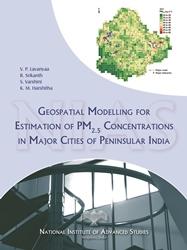
|
V P Lavanyaa, R Srikanth Geospatial modelling for estimation of PM2.5 concentrations in Major cities of Peninsular India https://cms.nias.res.in/sites/default/filesefs/files/about/NIAS_NSE_EECP_U_RR_03_23.pdf Coauthored with S. Varshini and K. M. Harshitha. Research Report No: NIAS/NSE/EECP/U/RR/03/23 Fine particulate matter (PM2.5) pollution is a primary global public health concern. Exposure to PM2.5 pollution beyond the safe limits of exposure is associated inter alia with respiratory and cardio-vascular mortality and morbidity. However, the baseline and background levels of PM2.5 concentration in megacities in India are significantly higher than the WHO Air Quality Guidelines which are based on studies conducted in regions with very low ambient PM concentrations. Human susceptibility to air pollution may vary based on age distribution, nutritional intake, access to health care, meteorological conditions, and any natural immunity. Therefore, it is essential to study the exposure-response function(s) specific to India using the local air pollution exposure studies.
On the other hand, the air quality monitoring stations used to measure ambient PM2.5 concentration are sparse and non-uniformly distributed in urban areas and nearly-absent in rural areas leading to the misclassification of exposure in India.
Therefore, the authors have developed a Linear Mixed Effects model in the present study to estimate PM2.5 levels in four major cities in peninsular India at a spatial resolution of 1 km x 1 km. Bengaluru (801 grids), Hyderabad (873 grids), Madurai (81 grids), and Vijayawada (88 grids) have been selected for this study since they are useful to estimate air pollution exposures for cities with different geographical, climatical, demographic and topographical conditions. |

|
Rudrodip Majumdar Thermal stratification characteristics during simultaneous charging and discharging for different storage tank geometries with immersed discharging coil https://www.sciencedirect.com/science/article/pii/S1359431123002648 Co-authored with Hitesh Khurana and Sandip K. Saha. Applied Thermal Engineering Vol, 225: 120235 dictate the efficacy of low-to-medium temperature hot water applications. This study uses a three-dimensional |
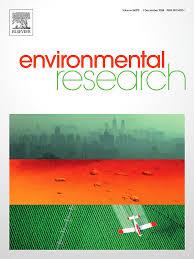
|
Gufran Beig co-authored Professor, Energy, Environment and Climate Change Programme Air quality and health co-benefits of climate change mitigation and adaptation actions by 2030: an interdisciplinary modeling study in Ahmedabad https://iopscience.iop.org/article/10.1088/2752-5309/aca7d8 Co-authored. Environmental Research: Health, 2022 Air quality and health co-benefits of climate change mitigation and adaptation actions by 2030: An interdisciplinary modelling study in Ahmedabad, India |
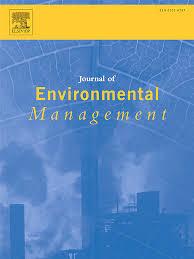
|
Gufran Beig co-authored Professor, Energy, Environment and Climate Change Programme Assessment of hazardous radionuclide emission due to fly ash from fossil fuel combustion in industrial activities in India and its impact on the public https://www.sciencedirect.com/science/article/pii/S0301479722024811?via%3Dihub= Co-authored with M Mishra, SK Sahu, P Mangaraj. Journal of Environmental Management, Vol. 328 Traditionally coal has been extensively used as a dominating fossil fuel in a wide range of industries due to its abundance. In India, industries like thermal power plants, cement industries, iron, and steel industries along with many captive power plants consume a huge quantity of coal each year to meet energy demand. The potential radionuclide hotspot regions across the nation are identified, which could be used as an important tool to assess its impact on the chronic exposure of millions of residents living near these sources. Cleaner or green energy could be the best alternative to combat the unseen health disaster. More effective and safe utilization of fly ash can minimize the hazardous effect of radionuclides emission. |
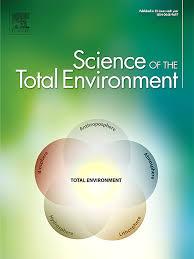
|
Gufran Beig co-authored Professor, Energy, Environment and Climate Change Programme Understanding the influence of Summer Biomass Burning on Air Quality in North India: Eight Cities Field Campaign Study https://www.sciencedirect.com/science/article/abs/pii/S0048969722074630?via%3Dihub= Co-authored with R Khaiwal, T Singh, V Singh, S Chintalapati, and S Mor. Science of the Total Environment, Vol. 861 Near real-time monitoring of major air pollutants, i.e., particulate matter (PM10, PM2.5, PM1), trace gases (O3, CO, NO, NO2, NOx, NH3, CO2, SO2) and Volatile Organic Compounds (VOCs: benzene, ethylbenzene, m-, p-xylene, o-xylene and toluene) along with climatological parameters was done in eight-cities field campaigns during the rabi (wheat) crop residue burning period in the northwest of Indo-Gangetic Plain (IGP) region. This multi-city study observed that semi-urban regions have the most compromised air quality during the rabi crop residue burning and need attention to address the air quality issues in the IGP region. |
| |
R Srikanth Professor, Energy, Environment and Climate Change Programme Role of Coal in India’s Energy Transition https://cms.nias.res.in/publications/role-of-coal-in-indias-energy-transition Research Report No. NIAS/NSE/EECP/U/RR/30/2022 Coal-based power generation in the EU will increase for the second consecutive year in 2022 after recording an increase of 20% in 2021 while natural gas production in the U.S. during 2022 has reached an all-time high of 2.7 billion cubic meters per day. India depends on coal for 72% of its electricity generation and it is critical for the country to expedite medium-term and long-term strategies to ensure the sustainability of India’s coal & power sectors without hampering our energy security and human development. These strategies are explained in this report. |
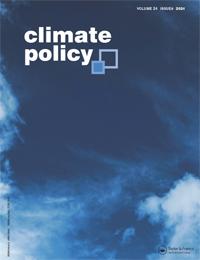
|
Tejal Kanitkar co-authored Associate Professor , Energy, Environment and Climate Change Programme Equity Assessment of Global Mitigation Pathways in the IPCC Sixth Assessment Report Co-authored with Akhil Mythri and T Jayaraman. OSF Pre-print Our analysis of IPCC Sixth Assessment scenarios shows that they disregard both the historical responsibility of the Global North for carbon emissions as well as the future energy needs of the Global South required to meet developmental goals. The burden of climate change mitigation is placed squarely on less developed countries, while developed countries continue to increase their energy consumption unhindered by constraints on the use of fossil fuels. |

|
Ankita Ranjan co-authored Doctoral Student, Energy, Environment and Climate Change Programme The real issue at COP27 is energy equity Co-authored with Tejal Kanitkar. The Hindu At the COP 27 summit in Sharm El Sheikh, Egypt (beginning November 6, 2022), the global South must put the question of its energy poverty and the severe global inequalities in energy access squarely at the centre of all discussions. |

|
Tejal Kanitkar co-authored Associate Professor , Energy, Environment and Climate Change Programme The real issue at COP27 is energy equity Co-authored with Ankita Rajan. The Hindu At the COP 27 summit in Sharm El Sheikh, Egypt (beginning November 6, 2022), the global South must put the question of its energy poverty and the severe global inequalities in energy access squarely at the centre of all discussions. |

|
R Srikanth co-authored Professor, Energy, Environment and Climate Change Programme Assessing equity in public transportation in an Indian city https://www.sciencedirect.com/science/article/abs/pii/S2213624X22001948 Co-authored with Ghosh, T. & Kanitkar, T. (2022). Assessing equity in public transportation in an Indian city. Case Studies on Transport Policy, 10(4), 2337-2349. |

|
Tanmay Ghosh co-authored Assessing equity in public transportation in an Indian city https://www.sciencedirect.com/science/article/abs/pii/S2213624X22001948 Co-authored with Kanitkar, T. & Srikanth, R. (2022). Assessing equity in public transportation in an Indian city. Case Studies on Transport Policy, 10(4), 2337-2349. |
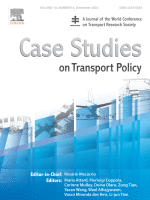
|
Tejal Kanitkar co-authored Associate Professor, Energy, Environment and Climate Change Programme Assessing equity in public transportation in an Indian city https://www.sciencedirect.com/science/article/abs/pii/S2213624X22001948 Co-authored with Ghosh, T. & Srikanth, R. (2022). Assessing equity in public transportation in an Indian city. Case Studies on Transport Policy, 10(4), 2337-2349. |

|
Adjunct Faculty, Energy, Environment and Climate Change Programme Permanent Court of Arbitration (PCA) Yearbook of International Environmental Law The Permanent Court of Arbitration (PCA) acted as a registry in four inter-state proceedings, 105 investor-state arbitrations, and sixty-five cases under contracts or other agreements involving a state or other public entities in 2021. The cases with environmental and natural resource aspects are addressed and highlighted in this study. |
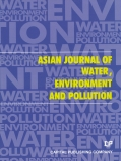
|
R Srikanth co-authored Professor, Energy, Environment and Climate Change Programme Application of Vegetation Index to Assess the Sustainability of Coal Mines in India https://res.us2.list-manage.com/track/click?u=4c96385cee36c21eb5f2510c4&id=6949fe520c&e=ffe444b6f3 Co-authored with Chanchal Chauhan, and Aariz Ahmed. In: Asian Journal of Water, Environment and Pollution, Volume 19 Coal mines must incorporate social and ecological sensitivities from the planning stage up to mine closure to meet India’s Sustainable Development Goals. The Normalized Vegetation Difference Index (NDVI) is useful to assess the environmental impacts of mining operations on the air quality and vegetation around coal mines and monitor the progress of post-closure activities. |

|
Rudrodip Majumdar Formulation of Prediction Model for Working Fluid Temperature in a Vertical Paraboloid Shaped Thermal Energy Storage Tank during Stand-Alone Operation https://onedrive.live.com/?cid=c8b2b81032d987d1&id=C8B2B81032D987D1%2130959&ithint=file%2Cpdf&authkey=%21AOc-IbCEJAOJUyA Co-authored with Hitesh Khurana and Sandip Kumar Saha, Conference Proceedings, pp. 507-512 in Proceedings of 16th International Conference on Heat Transfer, Fluid Mechanics, and Thermodynamics (HEFAT-2022), Virtual Conference, 08-10 August 2022 |
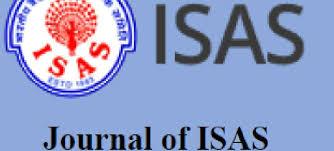
|
Gufran Beig co-authored Is ultraviolet Radiation a Confounding Variable for COVID-19 in India? https://isasjournal.isasbharat.in/assets/pdf/paper7.pdf Co-authored with Suvarna Tikle, Journal of ISAS, 2022, 1 (1), 123-137 The increase in Sun’s Ultraviolet radiation flux during lockdown led to reduced infections and death as the UV radiation breaks the genetic structure of the SARS-CoV-2 virus and deactivates it. |
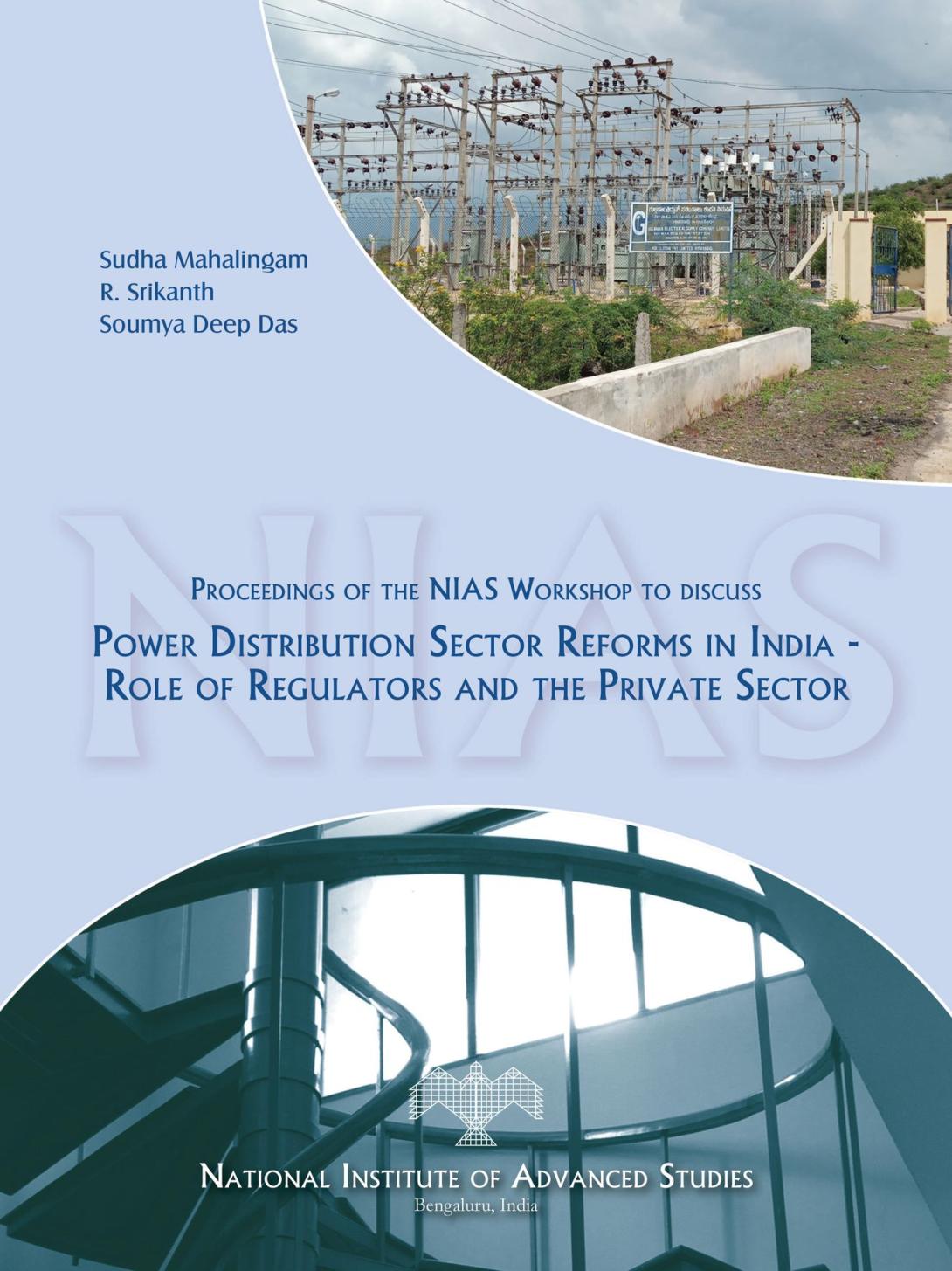
|
Sudha Mahalingam, R Srikanth, Soumya Deep Das co-authored Power Distribution Sector Reforms in India: Role of Regulators and The Private Sector https://cms.nias.res.in/sites/default/filesefs/2022-08/2208-EnergyProgramme-Report-DISCOMandRegulatoryReforms.pdf Workshop Report, NIAS/NSE/EECP/U/WR/20/2022 The accumulated losses of all State-owned power distribution companies (DISCOMs) have crossed Rs.5 lakh crore even after more than Rs.2 Trillion of their debt was taken over by the respective State Governments in FY 2015-16. The Government of India wants to pump in another Rs.3 trillion into these DISCOMs. This approach flags serious managerial deficiencies within the State-owned DISCOMs and the effectiveness of the electricity regulators in India. This report summarises the deliberations in a NIAS stakeholder consultation workshop. and the way forward for the power distribution sector. |

|
R Srikanth Professor, Energy, Environment and Climate Change Programme India Must Stay on its Clean Energy Path The Asian Age |

|
R Srikanth Professor, Energy, Environment and Climate Change Programme How to make coal mining sustainable https://www.thehindubusinessline.com/opinion/how-to-make-coal-mining-sustainable/article30078414.ece the Hindu Business Line |

|
R Srikanth co-authored Professor, Energy, Environment and Climate Change Programme Air quality in Bengaluru improves significantly post the lockdown https://www.thehindubusinessline.com/opinion/air-quality-in-bengaluru-improves-significantly-post-the-lockdown/article31516048.ece Co authored with V P Lavanya . The Hindu Business Line |

|
R Srikanth co-authored Professor, Energy, Environment and Climate Change Programme A jolt to National Energy Security https://www.thehindu.com/opinion/op-ed/a-jolt-to-national-energy-security/article31617586.ece Co- authored with Sudha Mahalingam and Tejal Kanitkar . The Hindu |

|
R Srikanth Professor, Energy, Environment and Climate Change Programme Costly solution:Careful on flue gas desulphurisers https://www.financialexpress.com/opinion/costly-solution-careful-on-flue-gas-desulphurisers/2035605 Financial Express |

|
R Srikanth co-authored Professor, Energy, Environment and Climate Change Programme A clean energy transition plan for India https://www.thehindu.com/opinion/op-ed/a-clean-energy-transition-plan-for-india/article37131191.ece Co -authored with A.V .Krishnan The Hindu |

|
R Srikanth Professor, Energy, Environment and Climate Change Programme Govt must address deep-rooted ills in coal sector https://www.deccanherald.com/specials/sunday-spotlight/govt-must-address-deep-rooted-ills-in-coal-power-sectors-1107367.html Deccan Herald |
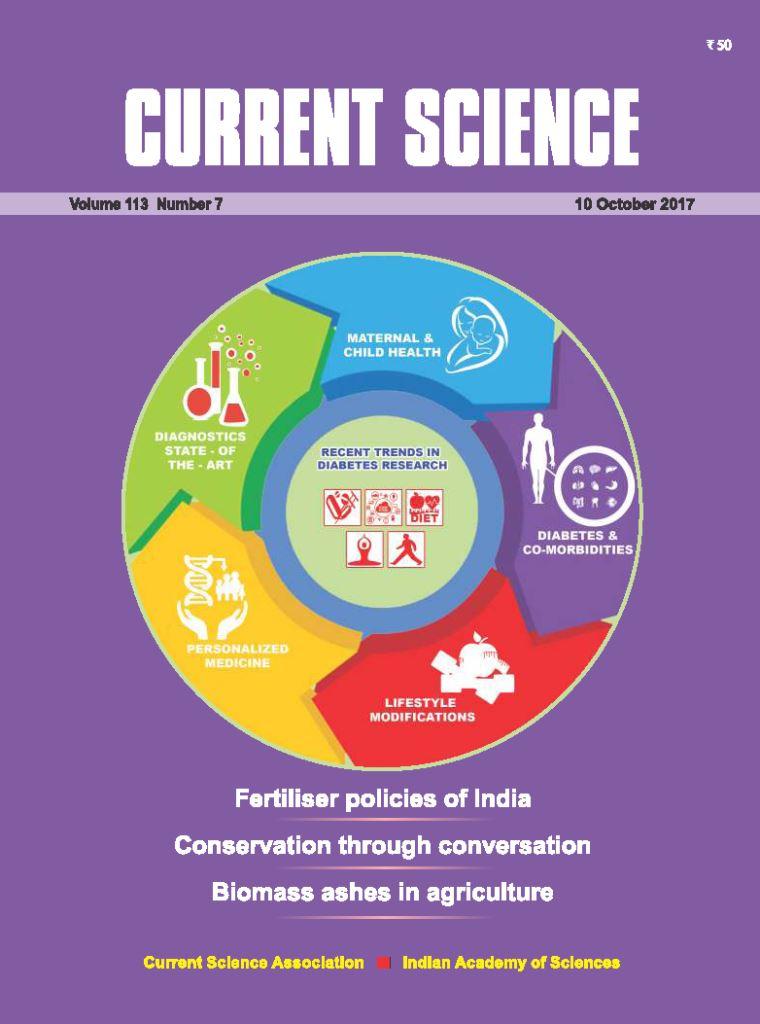
|
R Srikanth Professor, Energy, Environment and Climate Change Programme Why India needs a National Electricity Council http://www.currentscience.ac.in/Volumes/113/07/1233.pdf Current Science. Vol. 113. No. 7. pp. 1233-1241 |
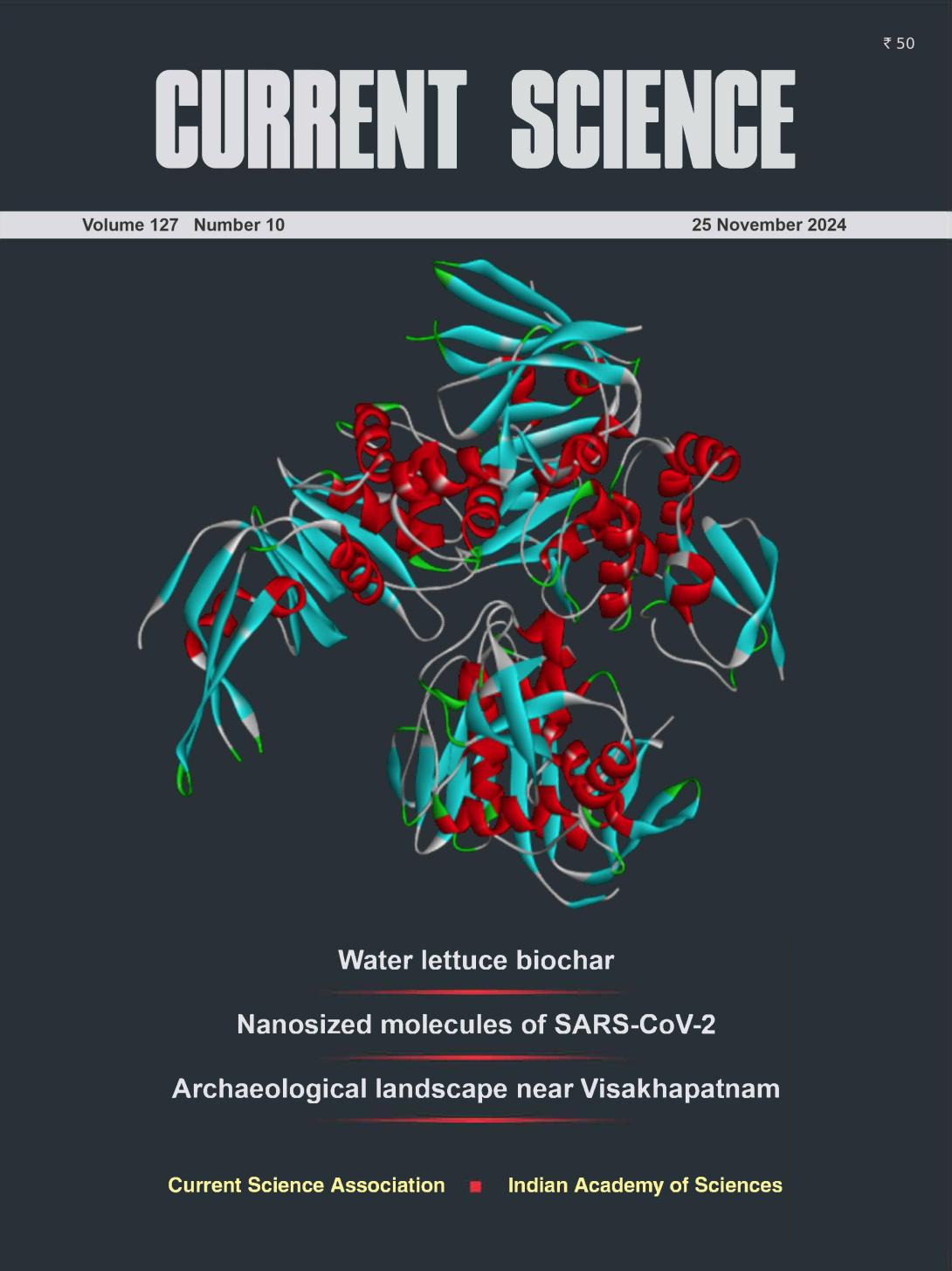
|
R Srikanth Professor, Energy, Environment and Climate Change Programme India’s Steel Industry – quo vadis? http://www.currentscience.ac.in/Volumes/114/02/0243.pdf Current Science. Vol. 114. No. 2. pp. 243-243 |

|
R Srikanth Professor, Energy, Environment and Climate Change Programme Role of Electric Mobility in a Sustainable, Energy-Secure Future for India http://www.currentscience.ac.in/Volumes/114/04/0732.pdf Current Science. Vol. 114. No. 4. pp. 732-739 |

|
R Srikanth co-authored Professor, Energy, Environment and Climate Change Programme Electricity (Amendment) Bill, 2020: Inviting a Bigger Crisis Co -authored Tejal Kanitkar and Sudha Mahalingam with Economic and Political Weekly. Vol. LV. No. 41. pp. 40-45 |

|
R Srikanth co-authored Professor, Energy, Environment and Climate Change Programme The Contribution of Shield Movement to Airborne Dust Levels in Longwall Faces Mining Engineering, Vol.47, No.6, pp.570-574 |
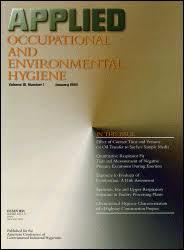
|
R Srikanth co-authored Professor, Energy, Environment and Climate Change Programme Single Breakage Studies to Determine the Relationships between Respirable Dust Generation and Coal Seam Characteristics https://doi.org/10.1080/1047322X.1996.10389955 Co-authored with Zhao, R., and Ramani, R.V.Applied Occupational and Environmental Hygiene. Vol. II, No.7, pp 662-668 |

|
R Srikanth co-authored Professor, Energy, Environment and Climate Change Programme Towards Sustainable Development: Planning Surface Coal Mine Closures in India https://www.tandfonline.com/doi/full/10.1080/21582041.2017.1394484 Co-authored with Hippu Salk Kristle Nathan.Contemporary Social Science: Journal of the Academy of Social Sciences. Vol. 13. No. 1. pp. 30-43 |

|
R Srikanth Professor, Energy, Environment and Climate Change Programme India’s Sustainable Development Goals – Glide Path for India’s Power Sector https://doi.org/10.1016/j.enpol.2018.08.050 Energy Policy. Vol. 123. pp. 325-336 |

|
R Srikanth co-authored Professor, Energy, Environment and Climate Change Programme Viability of Power Distribution in India – Challenges and Way Forward https://doi.org/10.1016/j.enpol.2020.111882 Co-authored with Soumya Deep Das .Energy Policy. Vol 147 |

|
R Srikanth co-authored Professor, Energy, Environment and Climate Change Programme Dispersion of Particulate Matter and Sulphur Oxides from Thermal Power Plant: A case study https://doi.org/10.1007/s10666-021-09790-6 Co-authored with Singh J and Ramasesha S.K .Environ Model Asses. Vol. 26 763-778 |

|
R Srikanth co-authored Professor, Energy, Environment and Climate Change Programme Cost and environmental benefits of coal-concentrated solar power (CSP) hybridization in India https://doi.org/10.1016/j.energy.2021.122805 Co-authored with Kamath, H. G., Majumdar, R., & Krishnan, A. V. (2022). Cost and environmental benefits of coal-concentrated solar power (CSP) hybridization in India. Energy, 240, 122805. The levelized cost of electricity (LCOE) and environmental advantages of coal-CSP hybrid systems are presented by simulating the hybrid system in two modes at three locations in India with contrasting DNI profiles. The cost of additional energy generated due to SAFWH in booster mode is up to 51.4% less as compared to a stand-alone CSP. In the fuel saver mode, up to 40 thousand tons of coal can be annually saved with SAFWH, thus reducing CO2 emissions by 1.7% as compared to a stand-alone coal-fired plant. |

|
R Srikanth co-authored Professor, Energy, Environment and Climate Change Programme Regulatory framework for India’s energy security and sustainability https://doi.org/10.1016/j.enpol.2022.112815 Co-authored with Sinha, S. K., & Mahalingam, S. (2022). Regulatory framework for India's energy security and sustainability. Energy Policy, 162, 112815. |

|
R Srikanth co-authored Professor, Energy, Environment and Climate Change Programme A Study of Air Quality in the Coalfields of NSW, Australia and Telangana, India https://doi.org/10.1007/s12524-022-01557-0 Co-authored with Harsh Kamath, Chanchal Chauhan. J Indian Soc Remote Sens |

|
R Srikanth co-authored Professor, Energy, Environment and Climate Change Programme Geospatial modelling for estimation of PM2.5 concentrations in two megacities in peninsular India https://doi.org/10.4209/aaqr.220110 Co-authored with Lavanyaa, V.P., Varshini, S., Mitra, S.S., Hungund, K.M., Majumdar, R., (2022). Geospatial Modelling for Estimation of PM2.5 Concentrations in Two Megacities in Peninsular India. Aerosol Air Qual. Res. 22, 220110. |

|
Tejal Kanitkar co-authored Associate Professor , Energy, Environment and Climate Change Programme Deepening the Climate Crisis In: Economic and Political Weekly, January 10, 2016, Vol XLV, No.1 |

|
Tejal Kanitkar, Rangan Banerjee, Jayaraman co-authored Associate Professor , Energy, Environment and Climate Change Programme An integrated modeling framework for energy economy and emissions modeling: A case for India |

|
Tejal Kanitkar, Sudha Mahalingam, R Srikanth co-authored Associate Professor , Energy, Environment and Climate Change Programme Electricity (Amendment) Bill https://www.epw.in/journal/2020/41/special-articles/electricity-amendment-bill-2020.html In: Economic & Political Weekly, Vol. 55, Issue No. 41 |

|
Tejal Kanitkar Associate Professor , Energy, Environment and Climate Change Programme The COVID-19 lockdown in India: Impacts on the economy and the power sector In: Global Transitions, 2, pp 150-156 |
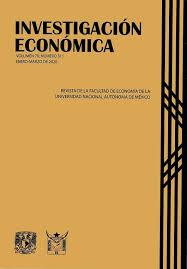
|
Tejal Kanitkar, R Ramakumar co-authored Associate Professor , Energy, Environment and Climate Change Programme Impact of COVID-19 Pandemic on the Indian Economy: A Critical Analysis |

|
Tejal Kanitkar co-authored Associate Professor , Energy, Environment and Climate Change Programme Equity in Global Climate Policy and Implications for India’s Energy Future In: Economic and Political Weekly, Vol. 56, Issue No. 52 |
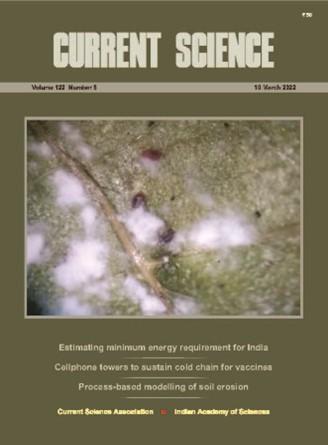
|
Tejal Kanitkar co-authored Associate Professor , Energy, Environment and Climate Change Programme Analysing the implications of electrification of public transport buses in Pune city, India In: Current Science, Vol 122, p 0557 |

|
Tejal Kanitkar co-authored Associate Professor , Energy, Environment and Climate Change Programme A methodology to correlate short-term regional climate action and long-term global temperature goals In: Current Science, Vol 122, pp 0689 |

|
Tejal Kanitkar co-authored Associate Professor , Energy, Environment and Climate Change Programme Equity and Burden Sharing in Emission Scenarios: A Carbon Budget Approach In: Handbook of Climate Change and India, Development, Politics and Governance, Oxford University Press |
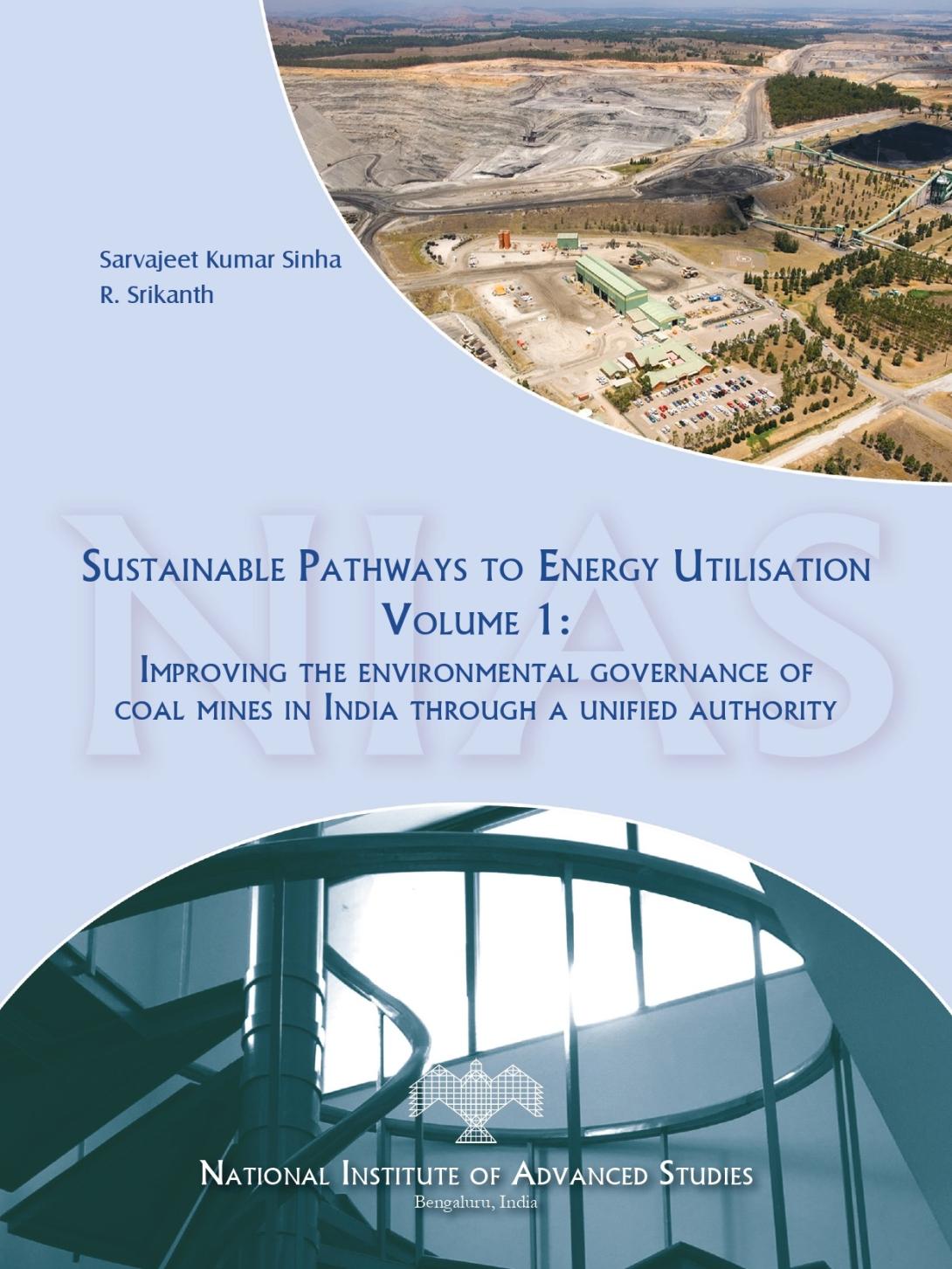
|
R Srikanth, Sarvajeet Kumar Sinha Sustainable Pathways to Energy Utilisation: Improving the environmental governance of coal mines in India through a unified authority https://cms.nias.res.in/sites/default/filesefs/2022-07/NIAS%20Research%20Report-Improving%20Environmental%20Governance%20of%20Coal%20Mines.pdf NIAS Research Report, NIAS/NSE/EEP/U/RR/06/2021, 2021 |
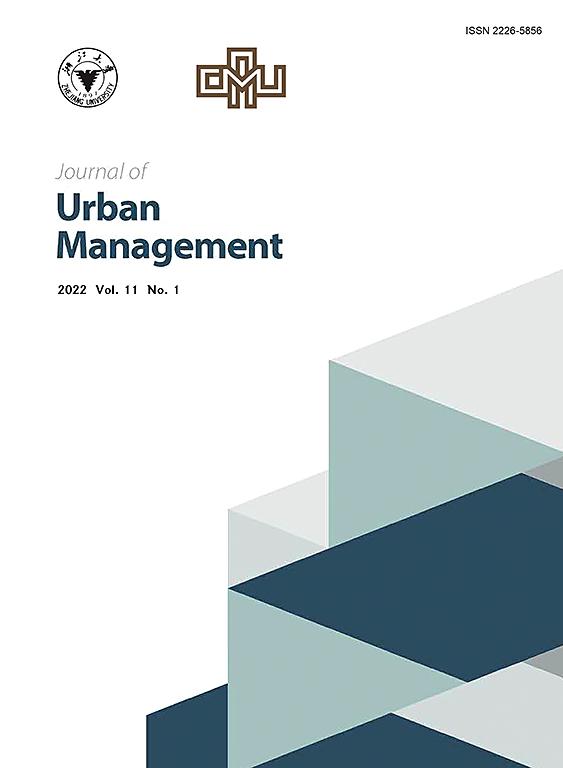
|
Harini Santhanam, Rudrodip Majumdar Assistant Professors, Energy, Environment and Climate Change Programme Quantification of green-blue ratios, impervious surface area and pace of urbanisation for sustainable management of urban lake - land zones in India -a case study from Bengaluru city https://authors.elsevier.com/sd/article/S2226-5856(22)00018-8 Journal of Urban Management, Elsevier, 28 March 2022 The study describes the creation of four simple metrics to estimate: 1. the ratio of ‘green’ vegetated areas to the ‘blue’ water spread areas, defined as the ‘Green-blue ratio’ (GBA); 2. The ratio of ‘blue’ water spread areas to ‘built-up’ ratio around the lakes, defined as the ‘Blue to Built-up ratio’ (BBA), 3. the percentage of impervious surface area (ISA) and 4. the pace of urbanisation in the dynamic zones (DZ) of urban lake environments. |

|
Harini Santhanam co-authored Assistant Professor, Energy, Environment and Climate Change Programme Assessment of Socio-technical Constraints of Marine Fishers in the Utilisation of Marine Fishery Advisories in Southern Odisha, India https://doi.org/10.1007/s44177-022-00014-4 Anthropocene Science, 2022 (Co-authored with Sudip Kumar Kundu) A case study from Odisha, India on the socio-technical constraints among fishers to utilise the services of marine fishery advisories provided to them. |

|
Harini Santhanam co-authored Assistant Professor, Energy, Environment and Climate Change Programme Ecosystem-based approaches to develop a monitoring framework for restoring the transitional lagoon ecosystem of Pulicat, India https://doi.org/10.1016/j.ecoleng.2022.106608 Co-authored with Shalini Dhyani, and Sudip Kumar Kundu, In: Ecological Engineering, Volume 179, June 2022 An analysis of the transformational processes, habitat fragmentation and resilience of Pulicat lake, India, a coastal ecosystem is presented in this co-authored publication.
|
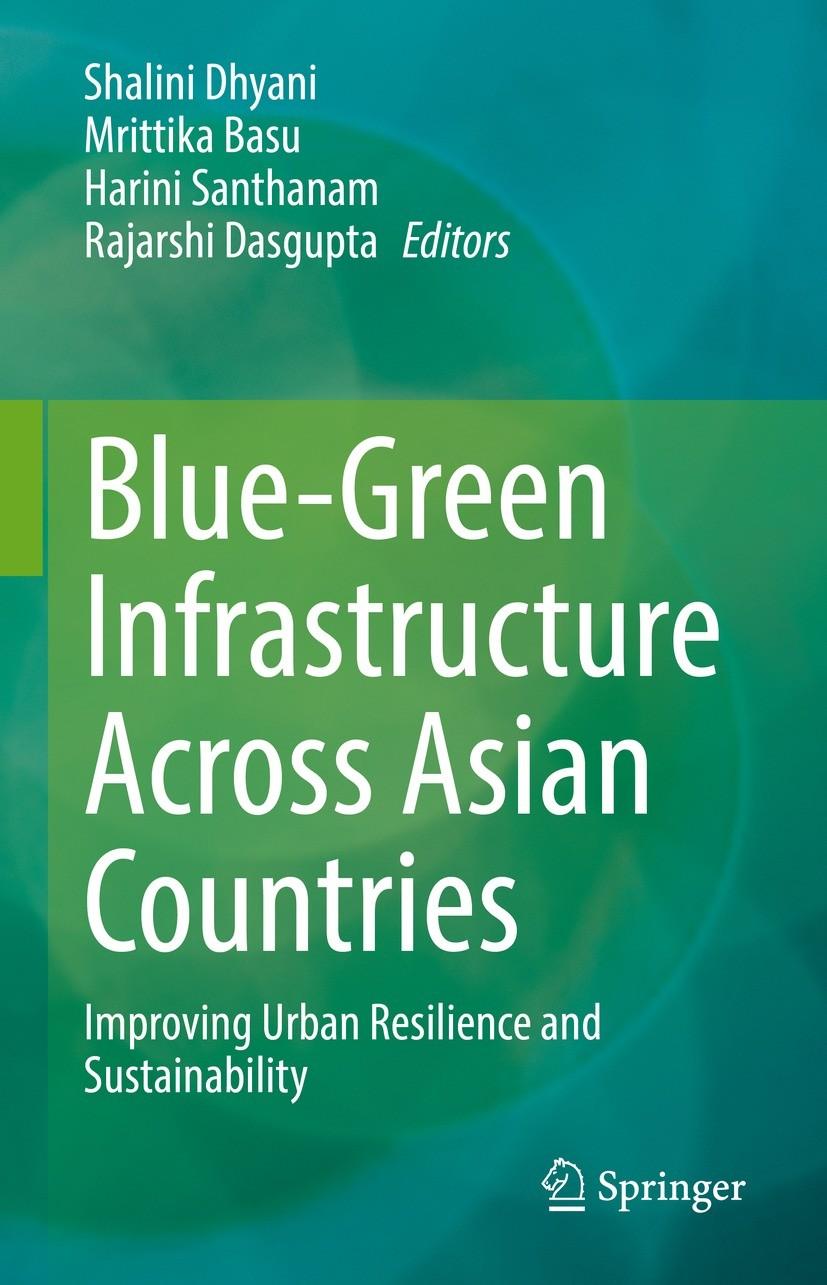
|
Harini Santhanam co-edited Assistant Professor, Energy, Environment and Climate Change Programme Blue-Green Infrastructure Across Asian Countries: Improving Urban Resilience and Sustainability https://doi.org/10.1007/978-981-16-7128-9 Co-edited by Shalini Dhyani, Mrittika Basu, Harini Santhanam, Rajarshi Dasgupta. eBook ISBN 978-981-16-7128-9, Edition Number 1, 25 March 2022 (Co-edited) This edited book discusses Blue-Green Infrastructure (BGI) from conception to implementation in building resilience and urban sustainability. The book emphasizes on infrastructures, institutions, and perceptions as three main pillars of implementing and managing successful BGI, with a special focus on Asia. |

|
Tejal Kanitkar Associate Professor, Energy, Environment and Climate Change Programme Is India concerned about its energy security? https://www.theindiaforum.in/article/india-concerned-about-its-energy-security The India Forum, 2 October 2020. 7 pages. India's overambitious targets for solar energy could destabilize its power sector and threaten energy security. Rather than 'green' political posturing, the country must plan an energy transition based on its developmental interests. |

|
Tejal Kanitkar co-authored A jolt to national energy security. The Hindu, 19 May 2020. |

|
Tejal Kanitkar co-authored Slowdown not the answer to clean air Frontline 37(12): 31-33. 19 June 2020. |

|
Tejal Kanitkar co-authored Why farmers are protesting Electricity Amendment Bill, 2020 News Click |

|
Tejal Kanitkar co-authored No, the lockdown is not a green moment. The Hindu, 22 May 2020. |

|
Tejal Kanitkar A time for extraordinary action The Hindu, 10 April 2020. |

|
Tejal Kanitkar What the 9-minute event means for the power grid. News Click, 4 April 2020. |

|
Tejal Kanitkar Why India’s Covid-19 package is grossly inadequate. News Click, 2 April 2020. |

|
Tejal Kanitkar Reject this inequitable climate proposal. The Hindu, 18 September 2020. |

|
Tejal Kanitkar A time for extraordinary action. The Hindu, 10 April 2020. |

|
Tejal Kanitkar Power Play. Frontline 37(14): 75-78, 17 July 2020. |

|
Tejal Kanitkar An incomplete story of the political economy of the power sector. Review of “Mapping power: The political economy of electricity in India’s states” by Navroz K Dubash, Sunila S Kale and Ranjit Bharvirkar New Delhi: Oxford University Press, 2018. Economic & Political Weekly 55(42): 27-28. |

|
Tejal Kanitkar Energy storage options for a renewable intensive future 01 October 2019. |
| Climate strike on September 20: What does and should it mean for Indian scientists? NewsClick, 17 Sep 2019. |
|

|
Tejal Kanitkar Modi’s 450 GW renewable energy: Who will foot the bill? NewsClick, 26 Sep 2019. |

|
Tejal Kanitkar Story of COP25: Climate ambition in the face of climate inaction NewsClick, 17 Dec 2019. |

|
R Srikanth co-authored How to make coal mining sustainable The Hindu Business Line, 25 November 2019 |
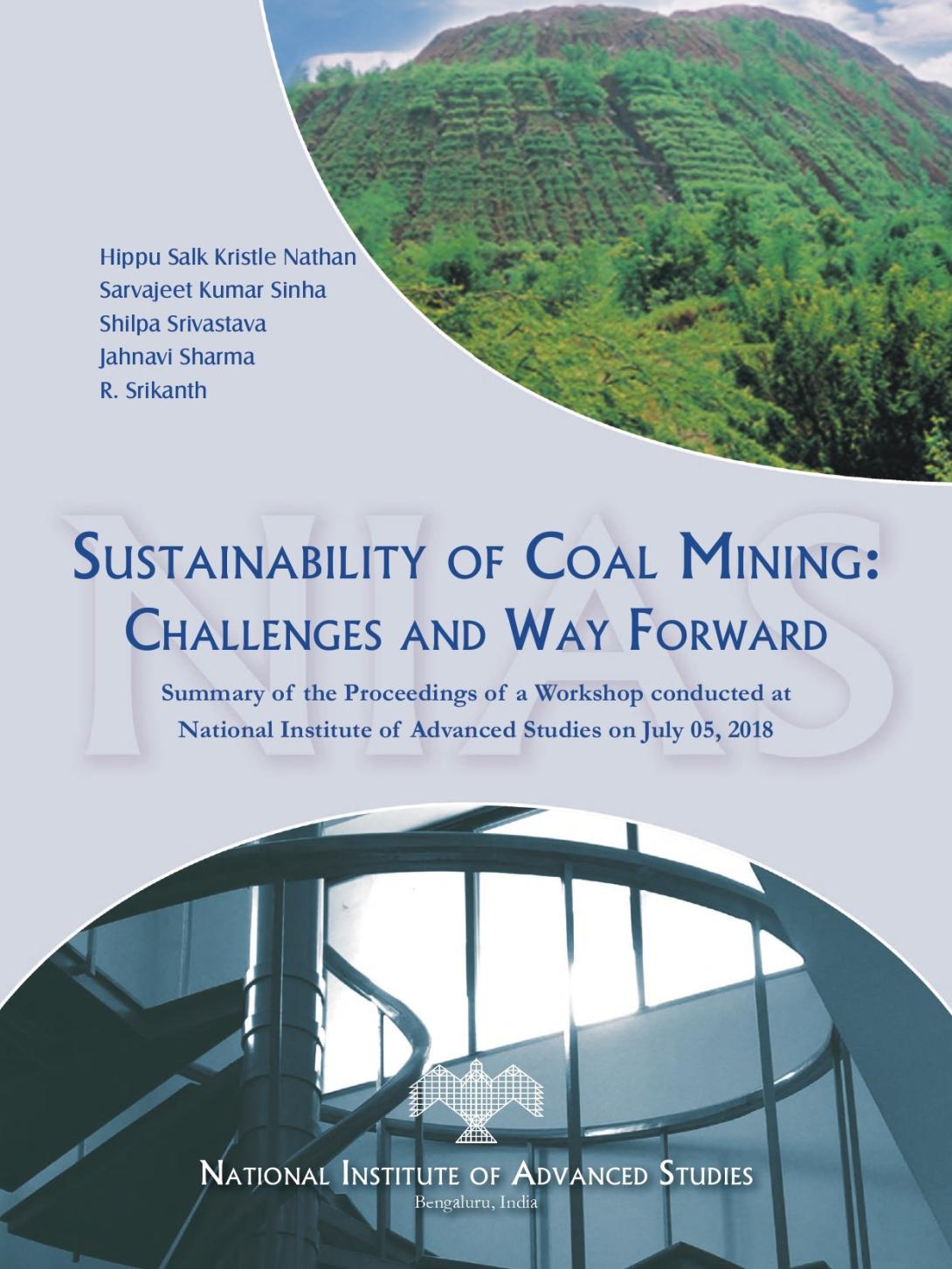
|
R Srikanth co-authored Sustainability of coal mining: Challenges and way forward NIAS Workshop Report No. NIAS/NSE/EEP/U/WR/071/2019 |

|
R Srikanth co-authored Spatial-temporal variations in the ambient air concentrations of particulate pollutants in and around coal mines and thermal power plants: A case study in Telangana, India NIAS Research Report No. NIAS/NSE/EEP/U/RR/16/2019 |
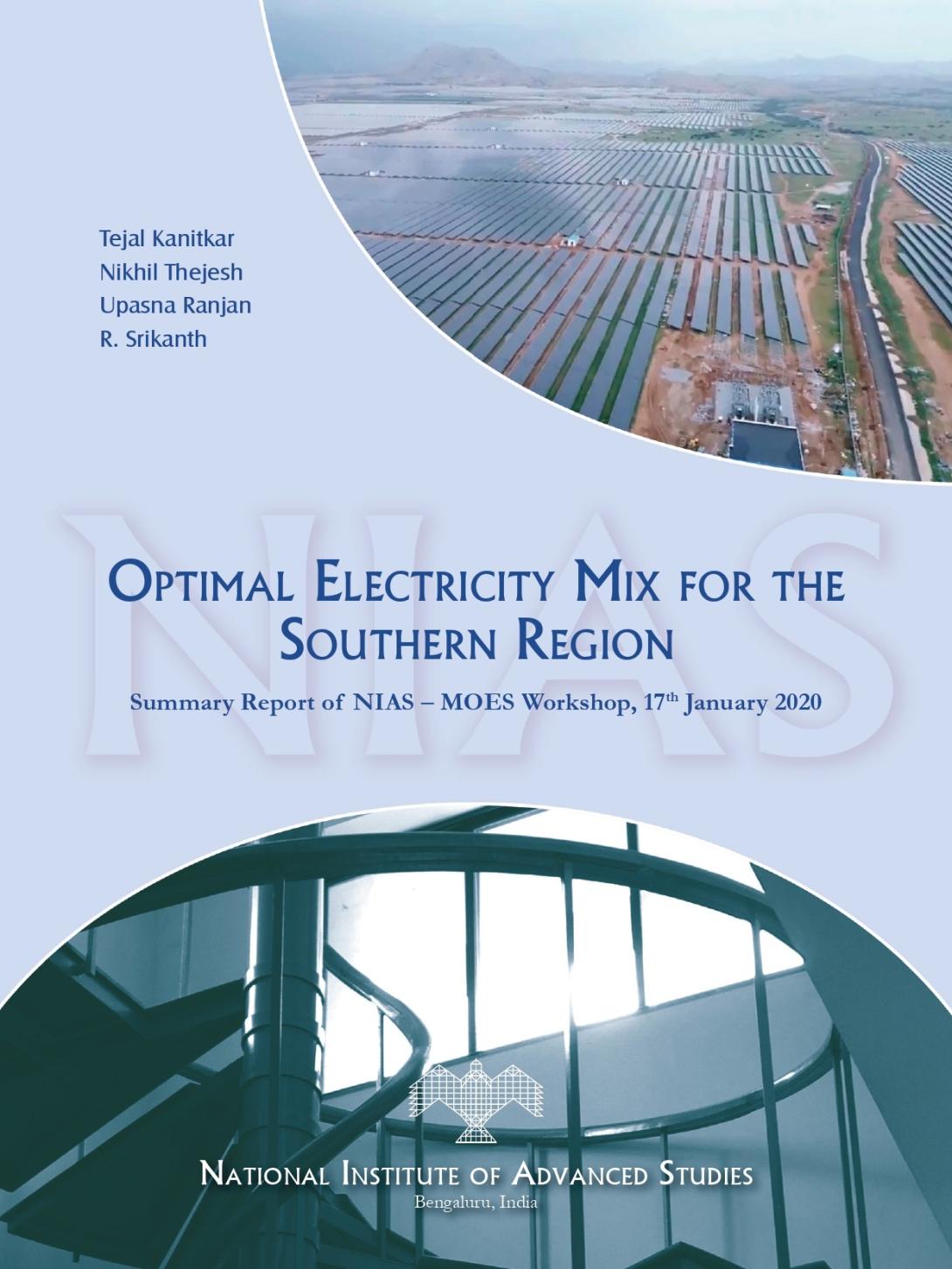
|
R Srikanth co-authored Optimal Electricity Mix for the Southern Region. NIAS Workshop Report No. NIAS/NSE/EEP/U/WR/07/2020 |

|
R Srikanth co-authored Sustainability of Coal Mining: Case study of Dorli-Bellampalli coal mines NIAS Research Report No. NIAS/NSE/EEP/U/RR/06/2020 |

|
R Srikanth, Soumya Deep Das co-authored Transition path to promote renewable energy by DISCOMs. Renewable Energy Summit. New Delhi: India Energy Forum |

|
R Srikanth, Harini Santhanam co-authored Pit lakes as sustainable post-closure interventions for open-cast coal mines in the Indian context Aqua Foundation's XIII World Aqua Congress: International Conference and Exhibition. New Delhi: Aqua Foundation's XIII World Aqua Congress |

|
R Srikanth, V P Lavanyaa co-authored Air quality in Bengaluru improves significantly post the lockdown BusinessLine, 6 May 2020 |

|
R Srikanth Costly solution: Careful on flue gas Desulphurisers Financial Express, 27 July 2020 |

|
R Srikanth Govt may do away with mandatory washing of coal for thermal power units The Pioneer, 18 May 2020 |
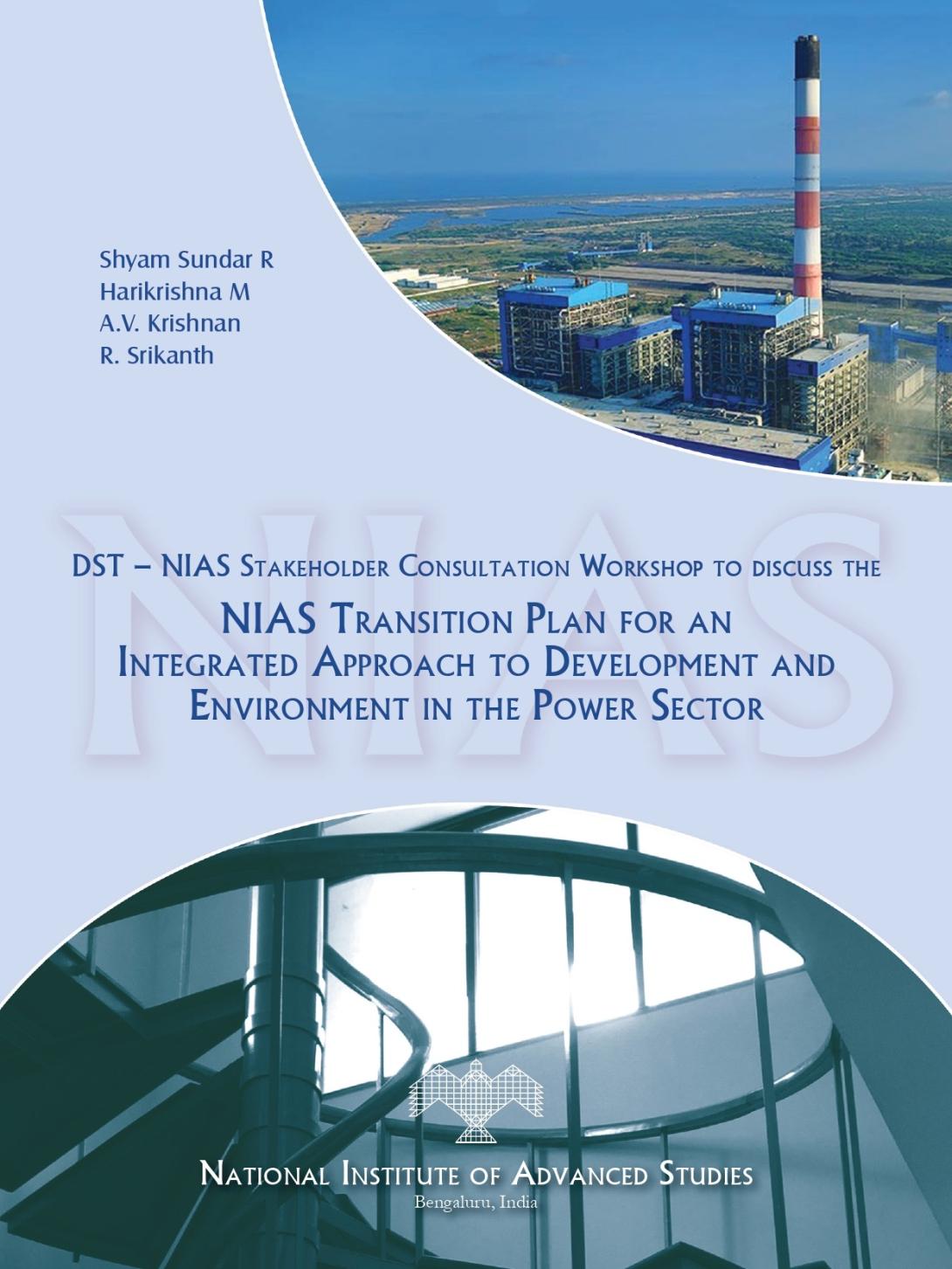
|
R Srikanth Executive Summary of the DST – NIAS Stakeholder Consultation workshop to discuss the NIAS Transition Plan for an Integrated Approach to Development and Environment in the Power Sector, DST – NIAS Virtual Workshop January 23, 2021 NIAS Workshop Report No. NIAS/NSE/EEP/U/WR/03/2021 |

|
S S Meenakshisundaram Visiting Professor, Energy, Environment and Climate Change Programme Book Review of ‘Indian Fiscal Federalism’ by Y.V. Reddy and G.R Reddy New Delhi: OUP, 2019. Aarthika Charche 4(2): 78-79. |
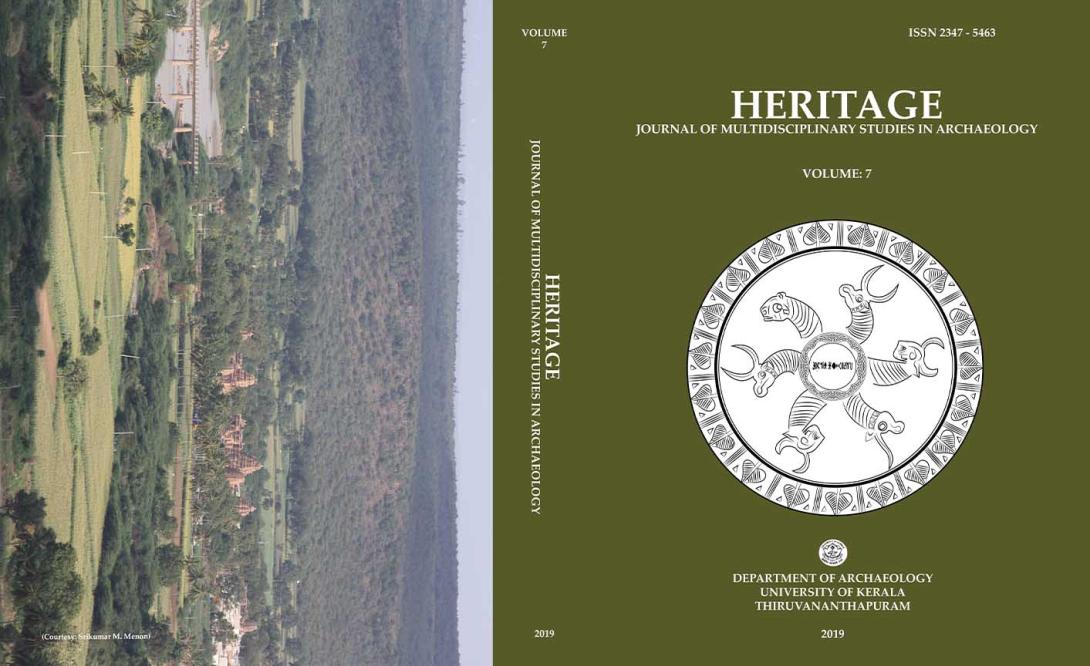
|
S Ranganathan co-authored Honorary Visiting Professor, Energy, Environment and Climate Change Programme A landscape analysis of fortification in Tamil Nadu using satellite images. Heritage: Journal of Multidisciplinary Studies in Archaeology 7: 195-210. |

|
Rudrodip Majumdar, Sandip K Saha co-authored Modelling of open thermochemical energy storage system for space heating using reduced order model. Proceedings of 25th National and 3rd International ISHMT-ASTFE, Heat and Mass Transfer Conference (IHMTC-2019). Paper ID: ENE-170 (6 pages). |

|
Rudrodip Majumdar, Sandip K Saha co-authored Study on the behaviour of thermal stratification in encapsulated PCM-based storage system. Proceedings of 25th National and 3rd International ISHMT-ASTFE, Heat and Mass Transfer Conference (IHMTC-2019), Paper ID: PCM-441. (6 pages). |

|
Rudrodip Majumdar, Sandip K Saha co-authored Performance evaluation of an open thermochemical energy storage system integrated with flat plate solar collector. Applied Thermal Engineering 173: 115218 (19 pages). |

|
Rudrodip Majumdar Assistant Professor, Energy, Environment and Climate Change Programme Tuberculosis: A brief overview and recent advancements in clinical treatment. https://cms.nias.res.in/sites/default/filesefs/2024-11/rudro.pdf Tuberculosis Newsletter 1(1): 9-11. |

|
Rudrodip Majumdar Assistant Professor, Energy, Environment and Climate Change Programme TB in Zoo Elephants and the Transmission of Infection into Zookeepers due to Extended Proximity during COVID-19 Pandemic. http://eprints.nias.res.in/2041/ TBInfo, 1 (2). pp. 1-7. Tuberculosis in captive Asian elephants has been a subject of interest among the experts and practitioners for the past few decades. During COVID -19 pandemic, the zoos remained closed and the caregivers had to spend extended hours in the enclosures to help the elephants get rid of boredom and depression. Such proximity enhanced the chance of TB transmission from elephants to human bodies. Hence, effective measures are needed for early detection of TB infection in captive elephants to curb further transmission. |
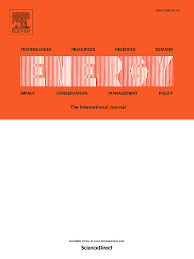
|
Tejal Kanitkar Framework for energy economy and emissions modeling: A case for India Energy 167: 670-679. |

|
Tejal Kanitkar Equity in long-term mitigation In: India in a Warming World: Integrating Climate Change and Development edited by Navroz K. Dubash. New Delhi: Oxford University Press, pp. 92-113. |

|
Tejal Kanitkar An integrated framework for energy-economy-emissions modelling: A case study of India. https://link.springer.com/book/10.1007/978-3-030-18263-2 Springer International. |

|
Rudrodip Majumdar co-authored Assistant Professor, Energy, Environment and Climate Change Programme Comparative evaluation of circular truncated-cone and paraboloid shapes for thermal energy storage tanks based on thermal stratification performance. Journal of Energy Storage 34:102191. |

|
Rudrodip Majumdar, Sandip K Saha co-authored Computational study of the performance of cascaded multi-layered packed-bed thermal energy storage for high temperature applications. Journal of Energy Storage 32: 101930. |
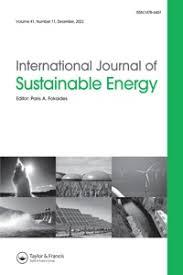
|
Rudrodip Majumdar co-authored Assistant Professor, Energy, Environment and Climate Change Programme Hybridisation of geothermal source with ORC-based load loop for uninterrupted generation of steady power. https://www.tandfonline.com/doi/abs/10.1080/14786451.2021.1895779 International Journal of Sustainable Energy |
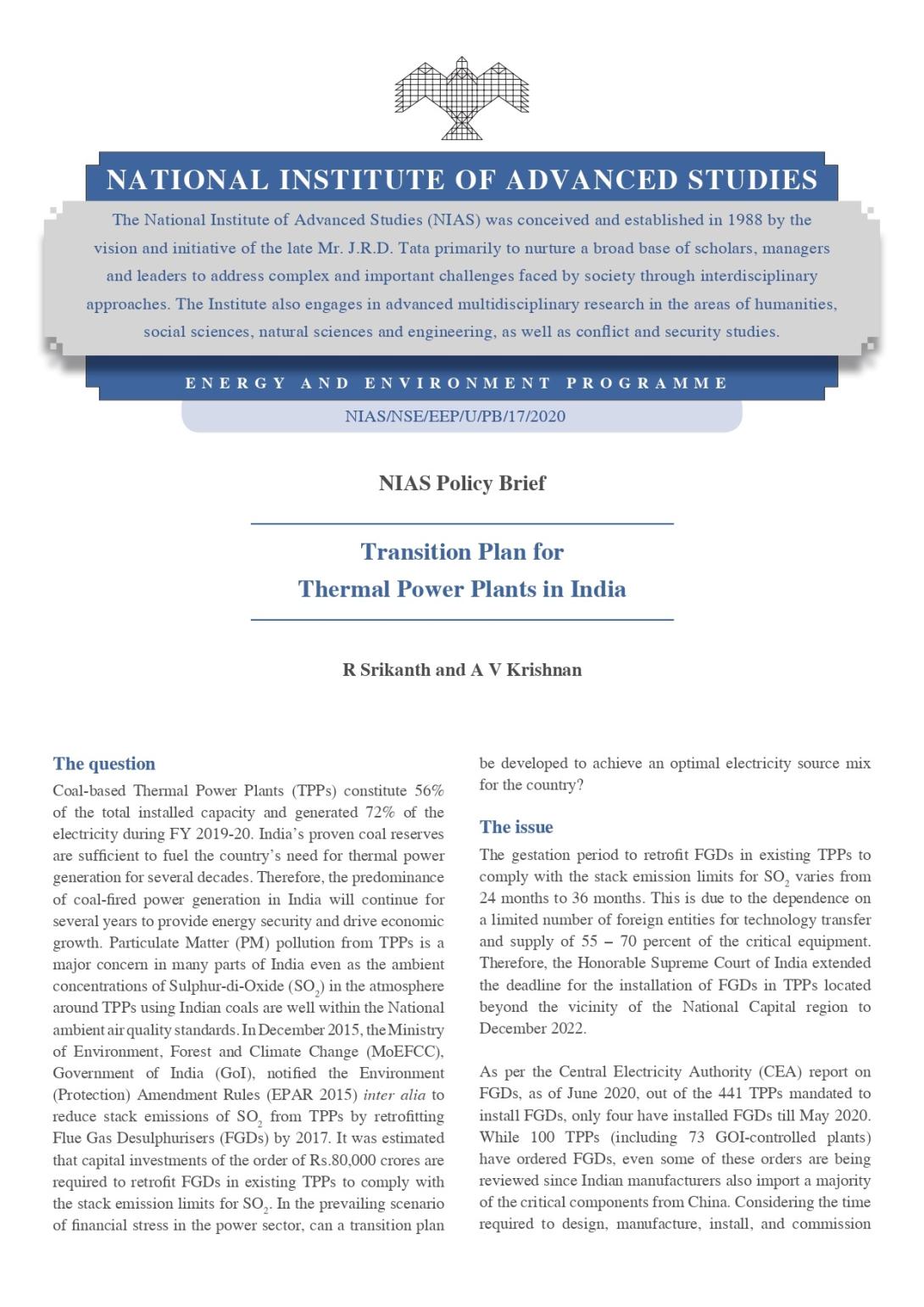
|
R Srikanth, A V Krishnan co-authored Transition plan for thermal power plants NIAS Policy Brief No. NIAS/NSE/EEP/U/PB/17/2020 |
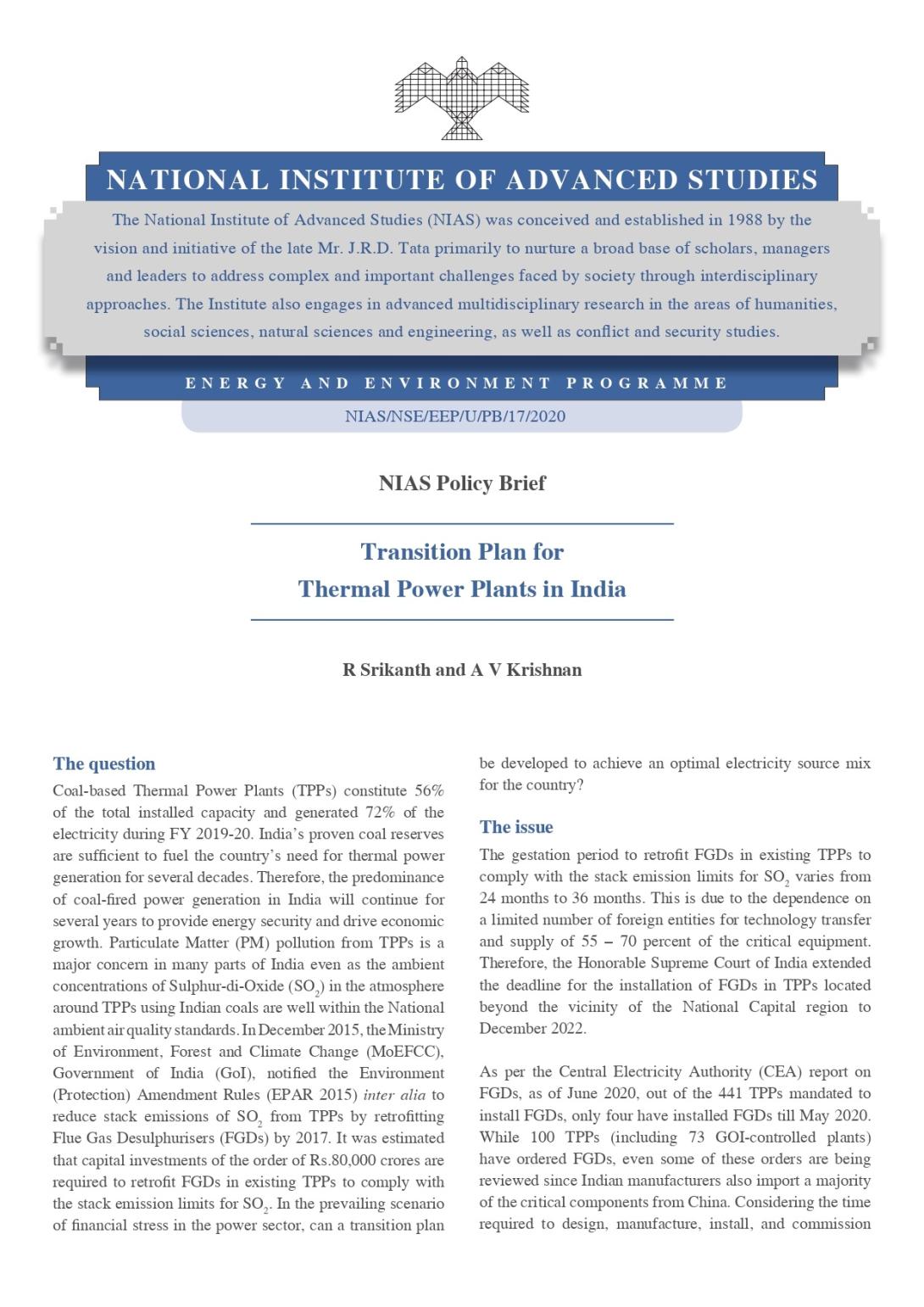
|
R Srikanth, Sarvajeet Kumar Sinha co-authored Sustainable coal mining – stakeholder consultation workshop |

|
R Srikanth Report of the expert group on washing of thermal coal is vital for India New Delhi: Coal Preparation Society in India |

|
R Srikanth Coal mining technology and practices in India: Challenges and prospects https://www.brookings.edu/books/future-of-coal-in-india-smooth-transition-or-bumpy-road-ahead/ In: Future of Coal in India: Smooth Transition or Bumpy Road Ahead? Notion Press and Brookings India |

|
R Srikanth, Soumya Deep Das co-authored Viability of power distribution in India – challenges and way forward. Energy Policy 147: 111882 |

|
Harini Santhanam co-authored Assistant Professor, Energy, Environment and Climate Change Programme Sustainability of Coal Mining: Case study of Dorli-Bellampalli coal mines. NIAS Research Report No. NIAS/NSE/EEP/U/RR/06/2020). |

|
Harini Santhanam, R Srikanth co-authored Harini Santhanam is Assistant Professor; R Srikanth is Professor and Dean, Energy, Environment and Climate Change Programme Pit lakes as sustainable post-closure interventions for open-cast coal mines in the Indian context. Aqua Foundation's XIII World Aqua Congress: International Conference and Exhibition. New Delhi: Aqua Foundation's XIII World Aqua Congress. |
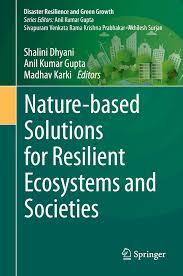
|
Rudrodip Majumdar, Harini Santhanam co-authored Rudrodip Majumdar is Assistant Professor; Harini Santhanam is Assistant Professor, Energy, Environment and Climate Change Programme Permeable pavements as sustainable nature-based solutions for the management of urban lake ecosystems In: Nature-based Solutions for Resilient Ecosystems and Societies, Disaster Resilience and Green Growth edited by Shalini Dhyani, Anil Kumar Gupta and Madhav Karki. Singapore: Springer, pp. 329-345. |
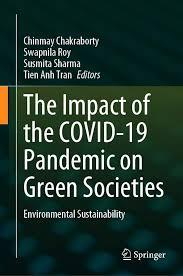
|
Rudrodip Majumdar Assistant Professor, Energy, Environment and Climate Change Programme Sludge hygienisation - a novel technology for urban areas to deal with incursion of COVID-19 viral particles in wastewater In: The Impact of the COVID-19 Pandemic on Green Societies: Environmental Sustainability edited by Chinmay Chakraborty, Swapnila Roy, Susmita Sharma. and Tien Anh Tran, Switzerland: Springer Nature, pp. 263-286. |

|
Harini Santhanam, Sudip Kumar Kundu Harini Santhanam is Assistant Professor; Sudip Kumar Kundu is PhD Scholar, Energy, Environment and Climate Change Programme A report on the impacts of cyclone Yaas over a fish landing center vulnerable to cyclonic storms and natural hazards – Talsari, Northern Odisha https://doi.org/10.1080/13549839.2021.1964457 September 2021 The present work reports the actual ground conditions prevalent at a fish landing center in Northern Odisha, namely, Talsari in the aftermath of the cyclone “Yaas”, which made landfall on May 26th, 2021. The coastal vulnerability and the impacts of the cyclone are discussed. |
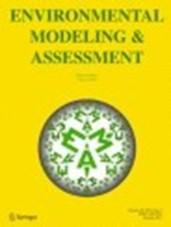
|
R Srikanth, J Singh, S K Ramasesha Professor and Head, Energy, Environment and Climate Change Programme Dispersion of Particulate Matter and Sulphur Oxides from Thermal Power Plant: A Case Study https://rdcu.be/crQaW Envrionmental Modeling and Assesmnet, August 2021 Power generation from Thermal Power Plants (TPP) in India forms the backbone of the power system. In this study, the dispersion of particulate matter and sulphur dioxide from a TPP with a 275 m-high stack are studied under different atmospheric conditions up to a distance of 30 km from the stack. Based on the results, policy changes that need to be implemented are suggested. |
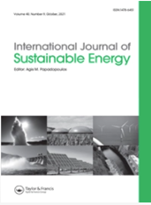
|
Rudrodip Majumdar co-authored Assistant Professor, Energy, Environment and Climate Change Programme Hybridization of geothermal source with ORC-based load loop for uninterrupted generation of steady power https://www.tandfonline.com/doi/full/10.1080/14786451.2021.1895779 International Journal of Sustainable Energy, March 2021 The dynamic performance of a hybrid power plant configuration comprising of a ground heat exchanger and an organic Rankine cycle (ORC) for power generation at the load end is studied. The simulation of dynamic characteristics demonstrates that the proposed geothermal-ORC hybrid system is capable of producing a steady power output of approximately 86.3 kWt. The exergy efficiency of U-shaped BHE without insulation is found to be the maximum. |
| |
Tejal Kanitkar, Nikhil Thejesh, Upasna Ranjan Tejal Kanitkar is Associate Professor; Nikhil Thejesh is Research Fellow; Upasna Ranjan is Research Fellow, Energy, Environment and Climate Change Programme Cost of avoided carbon: Optimizing power supply in southern India https://doi.org/10.1016/j.enpol.2020.111988 Energy Policy, February 2021 This paper analyses the power supply situation in Southern India for the year 2018 to evaluate the impact of renewable energy policies on energy costs and the resulting cost of avoided carbon. An optimization model is built using GAMS. Validating the model results against actual data for the year 2018 suggests that regulatory constraints and policy interventions have reduced the solution space for reasonable cost-based optimization in Southern India. |

|
R Srikanth Why India needs a Coal Mines Environment Authority https://res.us2.list-manage.com/track/click?u=4c96385cee36c21eb5f2510c4&id=1dc0103f32&e=2eb0e0e188 Co-authored with Sinha, S. K. & Nathan, H. S. K., (2021). Why India Needs a Coal Mines Environment Authority. Economic and Political Weekly, 56(51), 32-38. Given India’s continued dependence on coal to supply 24x7 power for industrial and residential consumers at affordable prices, the country needs a unified Coal Mines Environment Authority staffed with multi-disciplinary expertise to assess and minimize the adverse environmental impacts of coal mines with an integrated approach to ensure more efficient, effective and transparent environmental governance. |

|
Tejal Kanitkar Associate Professor, Energy, Environment and Climate Change Programme Equity in Global Climate Policy and Implications for India’s Energy Future https://res.us2.list-manage.com/track/click?u=4c96385cee36c21eb5f2510c4&id=95ad7da38a&e=2eb0e0e188 Economic & Political Weekly, 25 December 2021 |

|
Gufran Beig, R Srikanth, Shailesh Nayak Air Quality, National Standards and Human Health in India http://eprints.nias.res.in/2367/ Beig, Gufran and Srikanth, R and Nayak, Shailesh (2021) Air Quality, National Standards and Human Health in India (NIAS Policy Brief No. NIAS/NSE/EEC/U/PB/25/2021). Policy Brief. NIAS, Bangalore. The World Health Organization (WHO) recently (Sep 2021) released its revised Air Quality Guidelines (AQGs) which have been made more stringent compared to their earlier guidelines. This raises the question whether India’s National Ambient Air Quality Standards (NAAQS) notified by the MoEFCC in 2009 are adequate and whether the revised WHO AQGs are relevant for India. The natural corollary to this is to identify the policies and actions required to strengthen the science of risk assessment and develop rational estimates of mortality and morbidity attributed to air pollution amongst the population in India. These issues have been examined in the NIAS Policy Brief to recommend the way forward. |

|
A V Krishnan co-authored Cost and environmental benefits of coal-concentrated solar power (CSP) hybridization in India https://doi.org/10.1016/j.energy.2021.122805 Co-authored with Kamath, H. G., Majumdar, R., & Srikanth, R. (2022). Cost and environmental benefits of coal-concentrated solar power (CSP) hybridization in India. Energy, 240, 122805. The levelized cost of electricity (LCOE) and environmental advantages of coal-CSP hybrid systems are presented by simulating the hybrid system in two modes at three locations in India with contrasting DNI profiles. The cost of additional energy generated due to SAFWH in booster mode is up to 51.4% less as compared to a stand-alone CSP. In the fuel saver mode, up to 40 thousand tons of coal can be annually saved with SAFWH, thus reducing CO2 emissions by 1.7% as compared to a stand-alone coal-fired plant. |
| |
R Srikanth, A V Krishnan, Shyam Sundar R, Shilpa Srivastava co-authored Implementation of Clean Coal Technologies to comply with “New Emission Norms” for Thermal Power Plants - Way forward for Southern Region https://cms.nias.res.in/sites/default/filesefs/2022-07/NewEmissionNorms.pdf Summary Report of NITI Aayog-DST-NIAS Workshop 17 September 2019, NIAS/NSE/EEP/U/WR/13/2019 |
| |
Sarvajeet Kumar Sinha, R Srikanth Sarvajeet Kumar Sinha is PhD Scholar; R Srikanth is Professor and Head, Energy, Environment and Climate Change Programme DST - NIAS Sustainable Pathways to Energy Utilisation – Volume 1: Improving the environmental governance of coal mines in India through a unified authority https://www.nias.res.in/publication/dst-–-nias-sustainable-pathways-energy-utilisation-–-volume-1-improving-environmental NIAS Research Report, June 2021 The authors propose a “Sustainable Coal Mining (SCM) Bill” to constitute a unified authority named “Coal Mines Environment Authority” to enhance the effectiveness, efficiency, and transparency of the environmental regulation of coal mines. Besides the draft SCM Bill, the authors also explain the enabling amendments required in the existing environment, forest, and mining Laws to enact the SCM Bill. |

|
Shyam Sundar R, Harikrishna M, A V Krishnan, R Srikanth co-authored DST – NIAS Stakeholder Consultation workshop to discuss the NIAS Transition Plan for an Integrated Approach to Development and Environment in the Power Sector https://cms.nias.res.in/sites/default/filesefs/2022-07/Workshop%20Report%20on%20NIAS%20Transition%20Plan_0.pdf NIAS Workshop Report, March 2021 This report describes the research conducted by NIAS to develop an optimal transition plan for India’s power sector and concludes with policy recommendations for an orderly transition to a more environment-friendly generation mix for South India by 2030. |
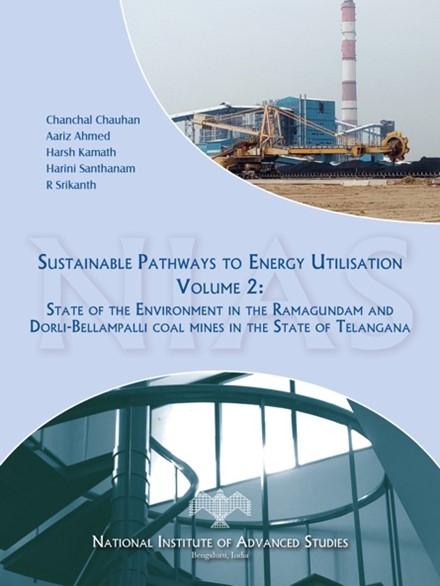
|
Chanchal Chauhan, Aariz Ahmed, Harini Santhanam, R Srikanth, Harsh Kamath Chanchal Chauhan is PhD Scholar; Aariz Ahmed is PhD Scholar; Harini Santhanam is Assistant Professor; R Srikanth is Professor and Head, Energy, Environment and Climate Change Programme DST – NIAS Sustainable Pathways to Energy Utilisation – Volume 2: State of the Environment in the Ramagundam and Dorli-Bellampalli coal mines in the State of Telangana https://cms.nias.res.in/sites/default/filesefs/2022-07/SERB%20Final%20Report%20Volume%202-Compressed.pdf NIAS Research Report, June 2021 The research report focuses on the Spatio-temporal trends in air quality, vegetation, and water quality before, during, and after the closure of opencast coal mines in India. Besides, Aerosol Optical Depth and Normalised Difference Vegetation Index have also been extracted to study the long-term trends in Particulate Matter concentrations and vegetation cover, respectively. The report concludes with policy recommendations to improve the sustainability of the coal sector. |

|
Nikhil Thejesh, Shyam Sundar R, A V Krishnan, R Srikanth NIAS Transition Plan for an Integrated Approach to Development and Environment in the Power Sector https://cms.nias.res.in/sites/default/filesefs/2022-07/Workshop%20Report%20on%20NIAS%20Transition%20Plan.pdf NIAS Research Report, August 2021 The NIAS Transition plan for India’s power sector involving the progressive retirement of 36 GW of capacity in 211 obsolete Thermal Power Plants (TPP)s based on key performance parameters and shifting their load to upcoming modern TPPs and Nuclear Power Plants. Implementation of the NIAS Transition Plan will enable the National Grid to meet the peak demand up to March 2030 with lower Capex and tariffs while reducing coal consumption, water requirement, air pollution, and CO2 emissions. |
| |
Soumya Deep Das, R Srikanth Soumya Deep Das is Doctoral Student; R Srikanth is Professor and Head, Energy, Environment and Climate Change Programme Viability of power distribution in India – Challenges and Way Forward https://doi.org/10.1016/j.enpol.2020.111882 Energy Policy, December 2020 Power distribution companies (DISCOMs) in India are experiencing financial stress. The high cost of power procurement is one of the key reasons for this financial stress. This is mainly due to a fragmented approach to power sector reforms. The authors offer insights and propose recommendations to address this situation. |
| |
R Srikanth, Sarvajeet Kumar Sinha Stakeholder Consultation Workshop on a Draft Sustainable Coal Mining Bill: Report of SERB https://cms.nias.res.in/sites/default/filesefs/2022-07/Srikanth-StakeholdersReport.pdf NIAS Virtual Workshop Report, October 2020 As part of a SERB-funded research Project, NIAS drafted proposals for a “Sustainable Coal Mining Bill” and an “Environment, Forest, and Mineral Laws (Amendment) Bill,” to create a unified, empowered, and inter-disciplinary environmental regulator for coal mines. These proposals were discussed during a virtual stakeholder consultation workshop on September 5, 2020. |
| |
Tejal Kanitkar, Sudha Mahalingam, R Srikanth Tejal Kanitkar is Associate Professor; Sudha Mahalingam is Visiting Professor; R Srikanth is Professor and Head, Energy, Environment and Climate Change Programme Electricity (Amendment) Bill 2020: Inviting a bigger crisis https://www.epw.in/journal/2020/41/special-articles/electricity-amendment-bill-2020.html October 2020 The paper analyses the proposed Electricity (Amendment) Bill, 2020 which is aimed at reducing subsidies and encouraging privatization, especially in the distribution segment of the power sector. The paper argues that the central government must hold off on passing any hasty legislation on the subject and adopt a more scientific and less ideological approach to deal with the travails of the power sector. |
| |
R Srikanth, A V Krishnan R Srikanth is Professor and Head; A V Krishnan is Visiting Professor, Energy, Environment and Climate Change Programme NIAS Transition Plan for Thermal Power Plants in India NIAS Policy Brief, September 2020 The NIAS Transition Plan for Thermal Power Plants (TPPs) recommends the progressive retirement of obsolete TPPs while shifting the load to existing and under-construction, modern TPPs and Nuclear Power Plants (NPPs) instead of retrofitting them with costly Flue Gas Desulfurisers (FGDs). Stack heights mandated for TPPs in India are designed to disperse SO2 emissions to ensure that ambient air SO2 levels comply with National standards. FGDs must be mandated only for TPPs in urban or sensitive or highly polluted areas since they increase specific CO2 emissions and water requirements and also hike tariffs. TPPs can use washed coal and retrofit high-performance Electrostatic Precipitators to reduce Particulate Matter (PM) emissions by 99.97 per cent without major capex. |
| |
Tejal Kanitkar co-authored Associate Professor, Energy, Environment and Climate Change Programme Impact of the Covid 19 pandemic on the Indian economy: A critical assessment http://ec2-3-108-111-222.ap-south-1.compute.amazonaws.com/niastestweb/sites/default/files/2022-03/2020-WP-18-Tejal-Kanitkar-Final.pdf NIAS Working Paper, September 2020 This paper analyses the economic impact of Covid-19 in India. It documents the trajectory of infections and the lockdown and evaluates the extent of economic losses due to the lockdown. It also critically assesses the economic response of the Indian government to the pandemic and the lockdown. |
| |
Harini Santhanam co-authored Assistant Professor, Energy, Environment and Climate Change Programme Saturation indices of aqueous mineral phases as proxies of seasonal dynamics of a transitional water ecosystem using a geochemical modeling approach. https://link.springer.com/article/10.1007%2Fs40808-020-00910-x Modeling Earth Systems and Environment, August 2020 In line with the recent research on coastal ecosystems, the present investigation details the changes in environmental parameters modeled as a function of their spatial and temporal distributions (dry and wet seasons) in a transitional aquatic ecosystem in South India, Pulicat lagoon using a geochemical model and saturation indices. |

|
Tejal Kanitkar Associate Professor, Energy, Environment and Climate Change Programme Is India concerned about its energy security? https://www.theindiaforum.in/article/india-concerned-about-its-energy-security The India Forum, September 2020 India's overambitious targets for solar energy could destabilize its power sector and threaten energy security. Rather than 'green' political posturing, the country must plan an energy transition based on its developmental interests. |
| |
Tejal Kanitkar Associate Professor, Energy, Environment and Climate Change Programme The COVID-19 lockdown in India: Impacts on the economy and the power sector. https://doi.org/10.1016/j.glt.2020.07.005 Global Transitions, August 2020 This paper demonstrates the use of a linear Input-Output (IO) model to estimate the economic losses in India due to COVID-19. The results show that depending on the duration of the lockdown, the Indian economy is likely to face a loss of about 10–31% of its GDP. The paper also discusses the impacts of COVID-19 on the demand and supply of electricity and CO2 emissions from the power sector. The cost of avoided carbon is approximately 186–264 $/tCO2. |
| |
Tejal Kanitkar co-authored Associate Professor, Energy, Environment and Climate Change Programme Impact of COVID-19 pandemic on the Indian economy: A critical analysis. http://dx.doi.org/10.22201/fe.01851667p.2021.315.76845 Investigation Economica, July 2020 This paper is an analysis of the economic impact of the Covid-19 pandemic in India. The economic crisis after March 2020 affected all the sectors of the Indian economy and led to a loss of employment to the tune of at least 15 million. Using an Input-Output (I-O) framework, we create four scenarios of losses to the Indian economy. We estimate that India’s GDP growth rate in 2020-2021 may range from –4.3% to –15%. |
| |
Rudrodip Majumdar co-authored Assistant Professor, Energy, Environment and Climate Change Programme Novel Dimension Scaling for Optimal Mass Flow Rate Estimation in Low-Temperature Flat Plate Solar Collector based on Thermal Performance https://www.sciencedirect.com/science/article/abs/pii/S2451904920300871 Thermal Science and Engineering Progress, May 2020 In this study, a simplified energy equations-based dynamic model is used to develop working relationships for calculating the collector dimensions and the optimum heat transfer fluid (HTF) mass flow rate for achieving a predefined thermal efficiency. The computational results for the geometrical configuration corresponding to an average DNI, calculated from actual solar radiation data, indicate that to achieve a fixed temperature and a collector efficiency, the required HTF mass flow rate increases with an increasing level of solar radiation. |

|
EECP Workshop Identification of Emission Hotspots using Drone Technology in Bengaluru Energy, Environment and Climate Change Programme Lecture Hall 27 June 2023, 1400 hrs |

|
NIAS Wednesday Discussion International Collaborations in Basic Research and Conflicts between Nations Dinesh Kumar Srivastava, Homi Bhabha Chair Professor, Energy, Environment and Climate Change Programme, School of Natural Sciences and Engineering Lecture Hall 06 April 2022 |





